Author: DEA
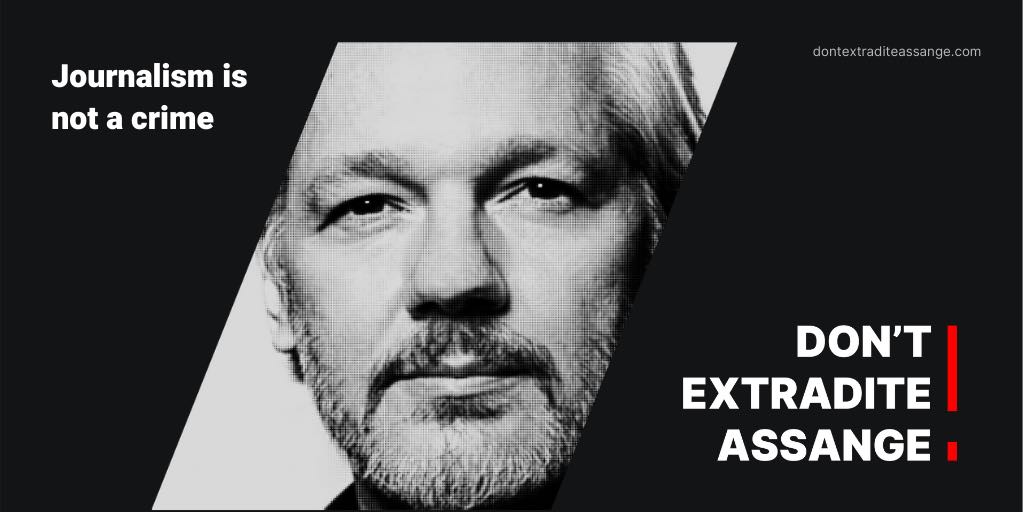
SEPTEMBER 18, 2020
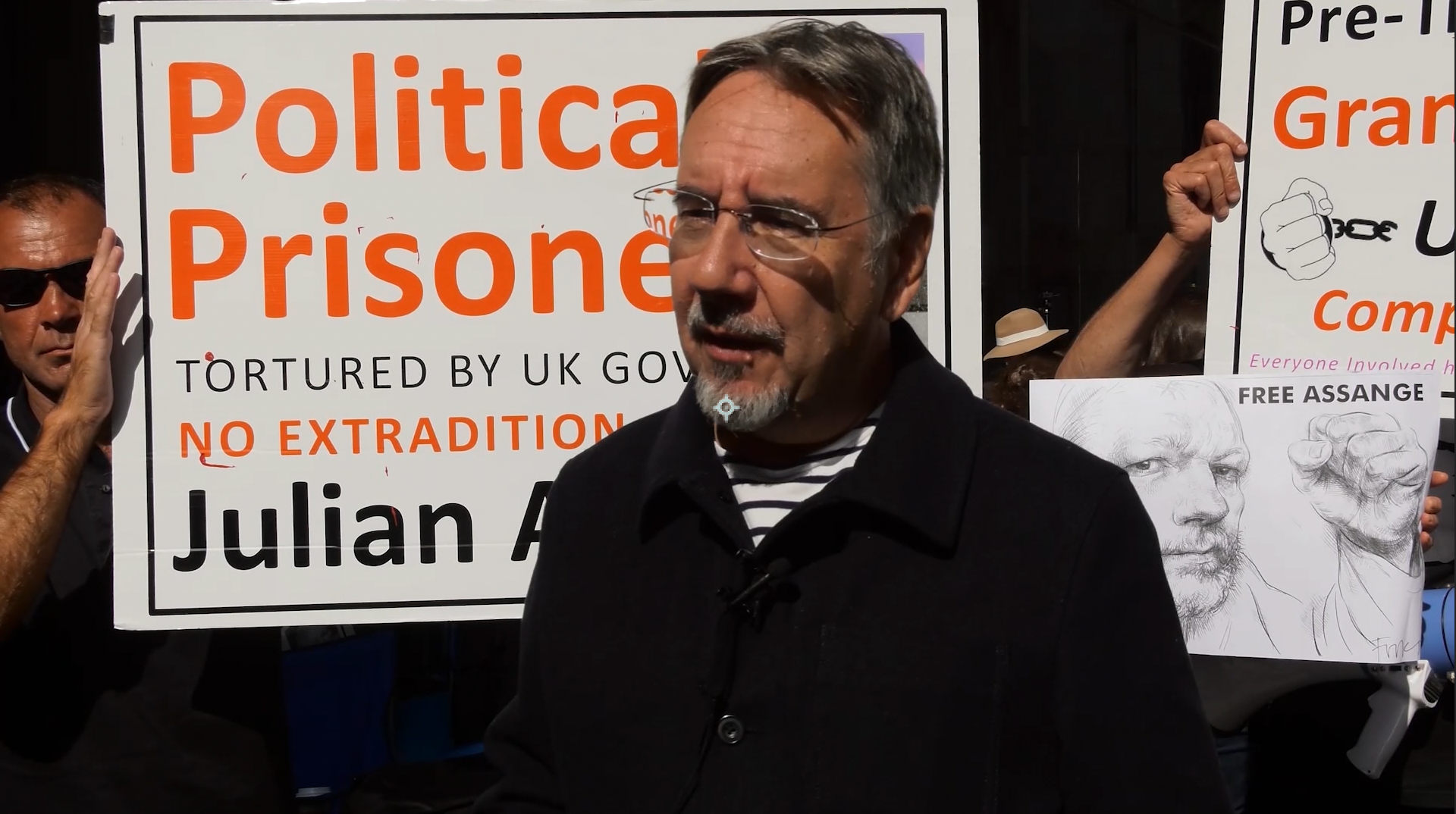
- See previous daily reports here and a video recap of last weekвҖҷs proceedings here
- See an overview of USA v. Julian Assange here
- See a thread of live-tweets of todayвҖҷs hearing here
- See todayвҖҷs video about the Suppression of Truth here
Nicky Hager: AssangeвҖҷs redactions protected informants

New Zealand investigative journalist Nicky Hager took to stand to testify about using WikiLeaks documents in his work. Hager published Other PeopleвҖҷs Wars, New Zealand in Afghanistan, Iraq and the war on terror, and said that WikiLeaks-released military and diplomatic files вҖңgreatly increased my understanding of the conduct of the war. It would have been impossible to write the book without these confidential and leaked sources.вҖқ
In his written testimony, Hager explained,
вҖңIt is in general impossible to research and write about war to a useful standard without access to sources that the authorities concerned regard as sensitive and out of bounds вҖ” and all the more so with the subject of war crimes.вҖқ
вҖңIn the case of war, information which is classified is essential to allow journalism to perform its roles of informing the public, enabling democratic decision making and deterring wrongdoing.вҖқ
Further commenting on the importance of WikiLeaksвҖҷ releases specifically, Hager compared the publication of the Collateral Murder video, in which U.S. gunmen can be heard saying вҖңLook at those dead bastardsвҖқ, to the video of the police killing George Floyd and his words вҖңI canвҖҷt breatheвҖқ for their contribution to вҖңworld opinion about the misuse of state power.вҖқ
Hager worked with WikiLeaks to report on the State Department cables, and he was called to testify about WikiLeaksвҖҷ redaction process. One of his jobs was to вҖңidentify any [cables] that should not be released for reasons such as personal safety of the named people.вҖқ Hager said he found WikiLeaks staff вҖңto be engaged in a careful and responsible process.вҖқ
On Assange specifically, Hager said that he spent a lot of time with Julian, and вҖңThe person I got to know was very different from the image portrayed in the US media.вҖқ
During cross-examination, the prosecution sought HagerвҖҷs opinion on the release of the unredacted embassy cables in 2011. Hager said, вҖңMy understanding is that the information came out before Wikileaks made that decision,вҖқ referring to the fact that cables were published on Cryptome and had already been mirrored on several other websites beforehand. вҖңWikiLeaks made strenuous efforts to keep it secret, and it was released elsewhere first.вҖқ
Pressed further about the releases, Hager said that he was вҖңglad that the redacted cables were out so long, that there was a 9-month period to warn any informants who couldвҖҷve been named.вҖқ Because WikiLeaks had first published redacted cables beginning in late 2010, the U.S. government was on notice as to whom it should alert. Although the cables were ultimately published without redactions, that lead time, Hager said, is probably why there were no deaths as a result of WikiLeaksвҖҷ releases.
Jennifer Robinson: Trump offered pardon for Assange in exchange for sources
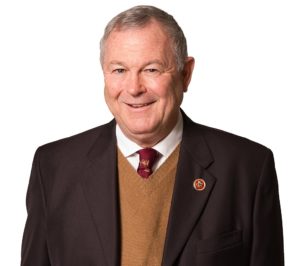
The defense then read a statement from Jennifer Robison, a barrister in London who has advised Assange since 2010.
RobinsonвҖҷs testimony recounted a meeting she observed between U.S. Congressman Dana Rohrabacher and Charles Johnson in the Ecuadorian Embassy. Congressman Rohrabacher made clear that he had come to the embassy on behalf of President Trump and they would вҖңhave an audienceвҖқ with Trump upon their return to Washington D.C.
Rohrabachr explained that he wanted вҖңto resolve the ongoing speculation about Russian involvementвҖқ in WikiLeaksвҖҷ publication of the Democratic National Committee leaks in 2016.
He said ongoing speculation was вҖңdamaging to US-Russian relations, that it was reviving old Cold War politics, and that it would be in the best interests of the US if the matter could be resolved.вҖқ Rohrabacher explained that information from Assange about the source of the DNC leaks would be of вҖңinterest, value and assistance to President.вҖқ
Rohrabacher proposed that Assange identify the source for the 2016 election publications вҖңin return for some form of pardon, assurance or agreement which would both benefit President Trump politically and prevent US indictment and extradition.вҖқ
Assange did not provide any source information to Rohrabacher, and instead Assange and Robinson urged the Congressman to raise the First Amendment implications of any U.S. indictment with President Trump.
The defense revealed this pardon offer to demonstrate the politicized nature of AssangeвҖҷs prosecution. The fact that it could be dropped if Assange provided source information, and the fact that it was brought after Assange declined to provide that information, belies claims of a desire to simply prosecute a crime.
Khaled el-Masri, kidnapped and tortured by the CIA
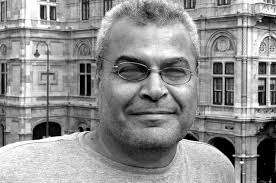
The defense then summarized a statement from Khaled el-Masri. As John Goetz outlined in his testimony on Wednesday, el-Masri was kidnapped and tortured by the CIA. El-MasriвҖҷs statement has been the subject of contention, because the prosecution (operating on instruction from the U.S. government) objected to admitting the statement as evidence.
Amid debate over whether to hear from el-Masri live by video or to read his statement aloud, the prosecution said, вҖңWe see no utility whatsoever in having Mr. el-Masri in court.вҖқ Julian spoke up from the dock: вҖңI will not censor a torture victimвҖҷs statement to this court,вҖқ he said. вҖңI will not accept that.вҖқ
The prosecution ultimately agreed to allow the вҖңgistвҖқ of the summary to be read as long as it was understood that the prosecution does not stipulate that el-Masri was tortured by the U.S. government.
An innocent German citizen, el-Masri was rendered to a CIA black site, where he was sodomized, force-fed through a tube through his nose, and subjected to total sensory deprivation. You can read his harrowing statement here.
The German state prosecutor issued an arrest warrant for the 13 CIA agents responsible. As Goetz explained, WikiLeaks documents revealed that the U.S. had pressured the German prosecutor to issue the warrant in a jurisdiction where the perpetrators didnвҖҷt live, threatening вҖңrepercussionsвҖқ otherwise.
A court ruled his detention and rendition were unjustified, but there has been no justice for the U.S., he said. El-Masri cited U.S. State Secretary Mike Pompeo threatening the family members of any International Criminal Court officials who cooperate with an investigation into U.S. crimes.
Carey Shenkman: Espionage Act instills a вҖңchilling effectвҖқ

Following el-MasriвҖҷs statement, historian and attorney Carey Shenkman continued his testimony on the historical applications of the Espionage Act.
Shenkman and prosecutor Clair Dobbin continued a lengthy exchange about case law on the Espionage Act. Dobbin read through several rulings on Espionage Act cases, arguing that the Act allows for prosecution of journalists, that it has been refined by judicial interpretation, and that challenges to its вҖңoverbreadthвҖқ have been tried and failed.
But Shenkman explained that these cases have dealt with government insiders, not members of the media, so the language used in those cases doesnвҖҷt necessarily apply here.
He said hereвҖҷs dispute in the scholarship as to whether these judicial interpretations could be called refinement. In fact вҖңif anything,вҖқ he said, вҖңsome of these terms have been broadened,вҖқ such as the fact that вҖңnational defense informationвҖқ doesnвҖҷt just mean classified information but instead includes anything the government considers sensitive.
The prosecution attempted to argue that the use of the Espionage Act has historically demonstrated вҖңrestraintвҖқ on the part of the government, but Shenkman said he doesnвҖҷt think any scholar on the issue would agree.
Shenkman explained that simply bringing forward an indictment under the Espionage Act against a journalist, even if the prosecution isnвҖҷt successful, combined with the lawвҖҷs вҖңbreadth and overuse,вҖқ instills a вҖңsignificant chilling effectвҖқ throughout the media. The effect pervades beyond journalists too, he noted, because the law is written so broadly that it could be used against anyone who even reads or retweets national defense information.
On the common threads running through all attempts to bring prosecution under the against the media, Shenkman said that in all cases, the journalists accused donвҖҷt support the administrationвҖҷs policies, are revealing misconduct, or are revealing information contrary to what the administration is revealing.
Reuters journalist Dean Yates: Assange told us what US wouldnвҖҷt
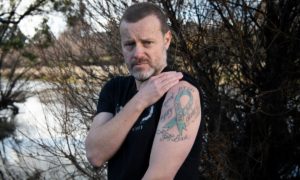
Finally, the defense read portions of a witness statement from Dean Yates, who was the Baghdad bureau chief for Reuters at the time of the incidents depicted in Collateral Murder. In the video, taken in July 2007, U.S. gunmen shoot and kill two Reuters journalists, Namir Noor-Eldeen and Saeed Chmagh, among other civilians.
Yates recounted his efforts to find out what happened that day and the U.S. efforts to stonewall him, including rejecting a Freedom of Information Act request for the video. The military showed him part of the video but not the whole thing. He explained that AssangeвҖҷs release of the video, along with the Rules of Engagement accompanying it, proved that the U.S. had lied to him.
вҖңWhen I had first been shown a part of the video in 2007 by the US military it had been burnt into my mind that the reason the helicopter opened fire was because Namir was peering the corner. I came to blame Namir, thinking that the helicopter fired because he had made himself look suspicious and it just erased from my memory the fact that the order to open fire had already been given. the one person who picked this up was Assange. On the day he released the tapes he said the helicopter opened fire because it sought permission and was given permission. He said something like, вҖҳIf thatвҖҷs based on the rules of engagement then the rules of engagement are wrong.вҖҷвҖқ
Yates said he found it вҖңimpossible to grapple with the moral injuryвҖқ of unfairly blaming Namir.
вҖңI was devastated at having failed to protect my staff by uncovering the Rules of Engagement in the US military before they were shot вҖ” and for not disclosing earlier my understanding of the extent to which the US had lied. I was profoundly affected.вҖқ
The U.S. government knows how powerful the video is too, Yates said.
вҖңThe US knows how devastating Collateral Murder is, how shameful it is to the military вҖ” they are fully aware that experts believe the shooting of the van was a potential war crime. They know that the banter between the pilots echoed the language that kids would use on video games.вҖқ
On the importance of the release, to the victims and to the rest of the world, Yates said,
вҖңI know Namir and Saeed would have remained forgotten statistics in a war that killed countless human beings, possibly hundreds of thousands of civilians. Had it not been for Chelsea Manning and Julian Assange the truth of what happened to Namir and Saeed, the truth of what happened on that street in Baghdad on July 12, 2007, would not have been brought to the world. What Assange did was 100% an act of truth-telling, exposing to the world what the war in Iraq in fact was and how the US military behaved and lied. The video was picked up by thousands of news organizations worldwide, sparking global outrage and condemnation of US military tactics in Iraq.вҖқ
The hearings resume on Monday.
SEPTEMBER 17, 2020
- See previous daily reports here and a video recap of last weekвҖҷs proceedings here
- See an overview of USA v. Julian Assange here
- See a thread of live-tweets of todayвҖҷs hearing here
WikiLeaksвҖҷ Iraq War Logs exposed 15,000 civilian casualties
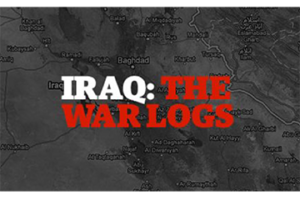
John Sloboda, co-founder of Iraq Body Count, an independent NGO devoted to continuously counting killings civilians in Iraq, testified today about working with Julian Assange and WikiLeaks on the Iraq War Logs, released in October of 2010.
Sloboda started Iraq Body Count to give вҖңdignity to the memory of those killedвҖқ,вҖқ because knowing how loved ones die is a вҖңfundamental human need,вҖқ and to aid in вҖңprocesses of truth, justice, and reconciliation.вҖқ
The Iraq War Logs, a compendium of 400,000 Significant Activity reports filed by the U.S. Army, constituted вҖңthe single largest contribution to public knowledge about civilian casualties in IraqвҖқ, Sloboda testified. The logs revealed an estimated 15,000 previously unknown deaths.
Most of these deaths were the results of small incidents, meaning 1-3 deaths at a time, вҖңthe kinds of incidents that attract the least reportingвҖқ he said in his statement.
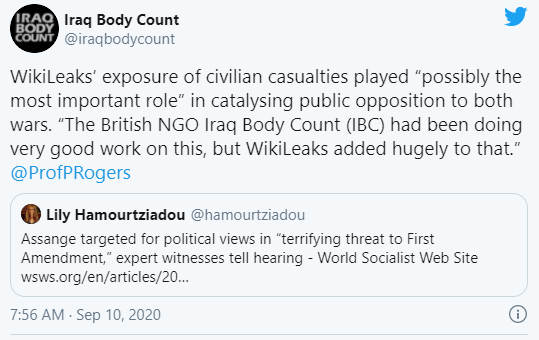
Redaction process
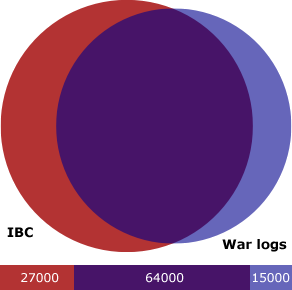
WikiLeaks invited Iraq Body Count to join the media partners and given pre-publication access to the material. Assange imposed a вҖңvery stringent redaction processвҖқ in order to protect named sources from potential harm. Sloboda explained that because the necessary redactions would have taken a team of hundreds to do this manually, an automated process was developed to scan the files and redact every word that wasnвҖҷt in a standard English dictionary, to automatically remove any names. Then the files were scanned to remove occupations, like вҖңdoctorвҖқ or вҖңdriverвҖқ, so as to further protect identities.
Redacting the logs took вҖңweeksвҖқ, Sloboda said, calling it a вҖңpainstaking process.вҖқ
The other journalists in the partnership wanted to hurry to publication. вҖңThere was considerable pressure on Wikileaks because the partners wanted to publish faster,вҖқ Sloboda said, but WikiLeaks continuously rejected this pressure, insisting that redactions must take place. Some media partners had redacted a small number of documents by hand and wanted to publish those first, but вҖңAssange and WikiLeaks wanted the entire database to be released together.вҖқ
Many people who used the war logs would agree they were over-redacted, Sloboda said, but the agreed stance was to be overcautious first and then to take a closer look afterward, to possibly unredact something if it was agreed it could be revealed.
On the importance of the releases, Sloboda writes in his witness statement that 10 years on, the Iraq War Logs вҖңremain the only source of information regarding many thousands of violent civilian deaths in Iraq between 2004 and 2009,вҖқ and it is Iraq Body CountвҖҷs position that вҖңcivilian casualty data should always be made public.вҖқ While the U.S. government often claims that the disclosure could have endangered Iraqi or U.S. lives, it вҖңhas never been able to demonstrate that a single individual has been significantly harmed by the release of these data. This is not least because the War Logs were highly redacted prior to their release by Wikileaks.вҖқ
вҖңIt could well be argued, therefore, that by making this information public Manning and Assange were carrying out a duty on behalf of the victims and the public at large that the US government was failing to carry out.вҖқ
Carey Shenkman: Espionage Act is an вҖңextraordinarily broadвҖқ political offense

The defense then called Carey Shenkman, an American human rights attorney and constitutional historian who is writing a book on historical analyses of the Espionage Act, to testify by video link from the United States. Shenkman has worked for the late Michael Ratner, President Emeritus at the Center for Constitutional Rights, which advised Assange and WikiLeaks prior to RatnerвҖҷs passing.
ShenkmanвҖҷs witness statement gives a history of the use of the Espionage Act, created in 1917 under President Woodrow Wilson, in what Shenkman refers to as вҖңone of the most politically repressive [periods] in the nationвҖҷs history.вҖқ The act was used against a range of dissidents, and Shenkman says he provides this history to show how widely it can be used and to show that the act is вҖңextraordinarily broadвҖқ and one of the U.S.вҖҷs most divisive laws.
Shenkman explained two key points about the law: first, it is written to criminalize the disclosure of not sure вҖңnational security informationвҖқ but all вҖңnational defenseвҖқ information, which means it encompasses even information that isnвҖҷt classified, and second, the act does not include a вҖңpublic interestвҖқ defense, meaning defendants canвҖҷt argue that disclosures were made to benefit the public.
In 2015, Shenkman wrote about the use of the act against whistleblowers in an article for the Huffington Post, вҖҳWhistleblowers Have a Human Right to a Public Interest Defense, And Hacktivists Do, Too.вҖқ
вҖңNot a single one of those prosecuted has been allowed to argue that their actions served the public goodвҖҰWhistleblowers cannot argue that their actions had positive effects, known as a вҖңpublic interest defense.вҖқ The United States treats disclosures to the press as acts of spying вҖ” no matter what good they lead to.вҖқ
Also in 2015, Shenkman and Ratner wrote, вҖҳCCR to UN: Whistleblower Protections Must Include Publishers Like WikiLeaks and Julian AssangeвҖҷ
вҖңthe ultimate effect of prosecuting and censoring publishers is the unacceptable chilling on the free flow of information, rights to access information, and freedom of expression.вҖқ
Because of just how controversial the Espionage Act is, Shenkman testified, there has never been a prosecution like the one against Assange.
вҖңThere has never, in the century-long history of the Espionage Act, been an indictment of a U.S. publisher under the law for the publication of secrets. Accordingly, there has never been an extraterritorial indictment of a non-U.S. publisher under the Act.вҖқ
Therefore, Shenkman told the court, journalists have generally felt comfortable that their activity was protected. This changed briefly in 2010, when the Obama administration began using the Espionage Act against sources and even named journalist James Rosen as an unindicted co-conspirator in an Espionage Act case, and fellow reporters began to get nervous. But Shenkman says, that anxiety was dialed back when then-Attorney General Eric Holder announced, upon his resignation in 2014, that naming Rosen as a co-conspirator in that case was his greatest regret in office.
But the Trump administrationвҖҷs escalation from prosecuting the sources to prosecuting the publisher has signaled a major shift that carries a widespread chilling effect. Shenkman writes:
вҖңWhat is now concluded, by journalists and publishers generally, is that any journalist in any country on earthвҖ”in fact any personвҖ”who conveys secrets that do not conform to the policy positions of the U.S. administration can be shown now to be liable to being charged under the Espionage Act of 1917.вҖқ
вҖңHighly politicized prosecutionвҖқ
On cross-examination, prosecutor Clair Dobbin attempted to get Shenkman to concede that in 2015, he felt that the U.S. still may bring charges against Julian Assange. This is part of the prosecutionвҖҷs effort with most witnesses to attempt to undermine the 2013 Washington Post article reporting that the Obama Administration would not be bringing Espionage Act charges against Assange. This is a key factor in the extradition proceedings, because the US-UK Extradition Treaty bars extradition for вҖңpolitical offensesвҖқ, and a clear decision not to prosecute by one administration followed by a 180Вә shift to a decision to prosecute by the following administration would appear plainly politicized.
Shenkman testified that he took the 2013 article at face value, that he believed the Obama DOJ had decided not to prosecute. Asked about the investigation into WikiLeaks continuing across administrations, Shenkman said, вҖңoftentimes these things are left to simmer, but ultimately an indictment wasnвҖҷt brought.вҖқ Furthermore, he argued, if Obama and Holder truly wanted to prosecute, wouldnвҖҷt they have been eager to do so? WouldnвҖҷt Obama have wanted to write in his memoirs that he was the one to prosecute WikiLeaks?
Asked again about the ongoing investigation, Shenkman said, вҖңUsing the Espionage Act like this is extremely contentious,вҖқ something he thought would be an apt assignment for law school students to debate and explore because itвҖҷs so contentious.
вҖңIвҖҷve never thought we would see something like [this indictment], he said, adding that most legal scholars agree that this use of the Espionage Act is вҖңtruly extraordinary.вҖқ Furthermore, he said, the way the charges are framed and the timing of the indictment вҖңreally point to a highly politicized prosecution.вҖқ He began to comment on the politicized nature of the way the 3 вҖңpure publicationвҖқ charges are written, but the prosecution stopped him, saying theyвҖҷd go through the indictment later.
In a long back-and-forth, the prosecution attempted to get Shenkman to comment on agreed legal principles in the U.S. Shenkman repeatedly explained that these are contentious issues dependent on the circumstances.
вҖңDo you agree that a government employee who steals national security or national defense information is not entitled to use the First Amendment as a shield?вҖқ Dobbins asked.
вҖңItвҖҷs a highly fact-specific inquiry,вҖқ Shenkman said, and it вҖңdepends on what you mean by вҖҳsteal.вҖқ For example, Shenkman noted that the 9th circuit appeals court recently ruled on Edward SnowdenвҖҷs NSA disclosures, and вҖңthey credited Mr Snowden with those disclosures even though he was a government employee accused of stealing these things.вҖқ
Shenkman and Dobbin had a similar disagreement over the use of вҖңhackingвҖқ вҖ” asked, вҖңAre you saying that hacking government databases is protected under the First Amendment?вҖқ, Shenkman said heвҖҷd have to ask what she means by вҖңhackingвҖқ, because the Computer Fraud and Abuse Act doesnвҖҷt actually use the term, instead it deals with вҖңexceeding unauthorized access.вҖқ
Phrases like вҖңcrack a passwordвҖқ and вҖңhack a computerвҖқ sound вҖңscaryвҖқ, Shenkman said, but there are many nuances and interpretations to consider. вҖңSo yes I think there are ways the First Amendment could be relevant.вҖқ
Failing to get a yes or no answer, Dobbin asked, so shouldnвҖҷt these matters be decided in a U.S. court?
Shenkman responded, вҖңNo,вҖқ saying that his testimony was about the application of the Espionage Act, and whether the way they are written in the indictment against Assange is вҖңpolitical.вҖқ
It became clear we would need more than another hour for ShenkmanвҖҷs cross-examination and closing questions by the defense, so court was adjourned for the day, and Shenkman will return to the stand tomorrow afternoon.

SEPTEMBER 16, 2020
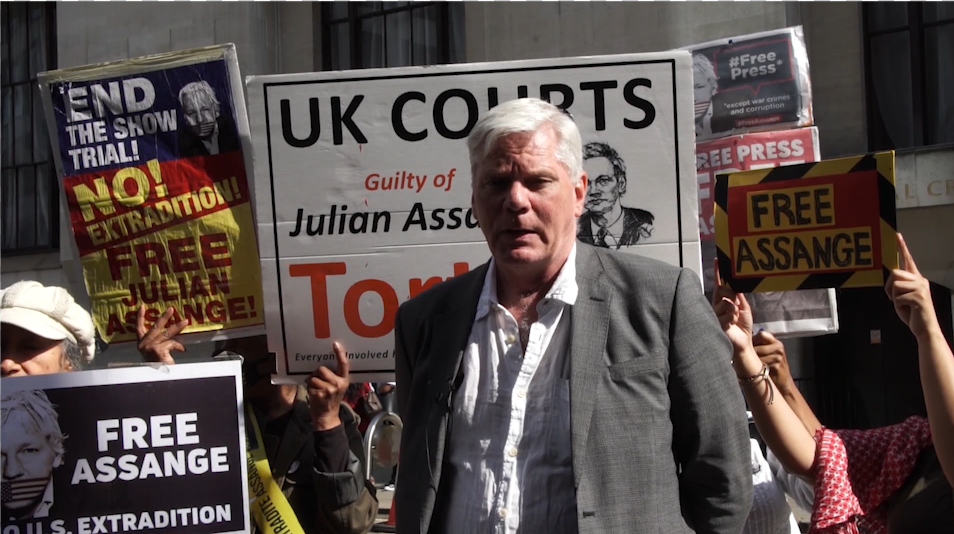
- See previous daily reports here and a video recap of last weekвҖҷs proceedings here
- See an overview of USA v. Julian Assange here
- See a thread of live-tweets of todayвҖҷs hearing here
- See todayвҖҷs video about Redactions and War Crimes here
John Goetz on WikiLeaksвҖҷ вҖңvery rigorous redaction processвҖқ

American journalist John Goetz, who has worked in Germany for the last 30 years, testified today about his experiences as a media partner on WikiLeaksвҖҷ releases in 2010. Working for Der Spiegel, Goetz had already been reporting on Iraq and Afghanistan when he joined the partnership to report the Afghan War Diaries, the Iraq War Logs, and the State Department cables.
WikiLeaksвҖҷ Harm-Minimization Withheld 15,000 documents
Goetz was involved in early discussions and testified that Wikileaks spearheaded a вҖңvery rigorous redaction process,вҖқ beginning with the Afghanistan files. He said Assange himself was вҖңvery concerned with the technical aspect of trying to find the names in this massive collection of documentsвҖқ so that вҖңwe could redact them, so they wouldnвҖҷt be published, so they wouldnвҖҷt be harmed.вҖқ He testified that Assange continually reminded the media partners to use secure communications, encrypted phones and apps, and while he seemed paranoid at the time, this is now standard journalistic practice.
Goetz also testified about WikiLeaks and the media partnersвҖҷ conversations with the U.S. government ahead of publication. At one point the partners were on a conference call with the State Department in which U.S. officials would provide numbers of documents that they especially didnвҖҷt want published. They didnвҖҷt give specific names to redact but rather were indicating politically sensitive areas вҖ” when they realized that they were just calling attention to stories the journalists would be interested, they stopped.
The media partners also sent a delegation of New York Times reporters, who already had an office in Washington DC, to the White House to discuss the release ahead of time. As the TimesвҖҷ Eric Schmitt emailed to Goetz immediately after the meeting, the media delegation passed on to the U.S. government that WikiLeaks would not be publishing some 15,000 documents within the Afghan War Diaries, and they asked the White House for any technical assistance they could provide to assist with redactions. That request, Goetz said, was met with вҖңderision.вҖқ
As Goetz testified, Der Spiegel interviewed Assange in 2010 about his harm-minimization process
Assange: The Kabul files contain no information related to current troop movements. The source went through their own harm-minimization process and instructed us to conduct our usual review to make sure there was not a significant chance of innocents being negatively affected. We understand the importance of protecting confidential sources, and we understand why it is important to protect certain US and ISAF sources.
SPIEGEL: So what, specifically, did you do to minimize any possible harm?
Assange: We identified cases where there may be a reasonable chance of harm occurring to the innocent. Those records were identified and edited accordingly.
Iraq War Logs: WikiLeaks redacted more than the U.S. govвҖҷt
Though he personally wasnвҖҷt as involved in later releases, Goetz testified that with future releases, WikiLeaksвҖҷ harm-minimization process developed over time, and he said that the organization вҖңovershotвҖқ with the Iraq War Logs, and вҖңended up redacting more than the Defense Department did. Some of the files had been declassified and released under FOIA requests, so one could compare redactions and see that WikiLeaks had concealed more names than the U.S. government had.
WikiLeaks docs confirm CIA torture & escaping accountability
Giving an example of the types of stories that WikiLeaks releases assisted with, Goetz explained had been investigating the story of Khalid el-Masri, a German citizen who was kidnapped by the CIA in Macedonia, extraordinarily rendered to a black site in Afghanistan where he was detained and tortured in 2004. This wasnвҖҷt known at the time, so Goetz searched the documents for el-MasriвҖҷs name, saw that he had been brought to Afghanistan, and found the CIA kidnappers вҖңwhoвҖҷd forced el-Masri onto a military plane, sodomized him and sent himвҖқ to Afghanistan.
Goetz tracked down the CIA agents responsible in the United States, interviewed them, and reported the story. Following that broadcast, a Munich state prosecutor issued an arrest warrant for the 13 CIA agents. But, Goetz said, вҖңIt turns out the arrest warrant was never actually issued to the United States.вҖқ When he saw the State Department cables, he discovered that the U.S. had pressured the German prosecutor to issue the warrant in a jurisdiction where the perpetrators didnвҖҷt live, threatening вҖңrepercussionsвҖқ otherwise.
Following GoetzвҖҷs testimony, the defense wanted to read a statement from Khalid el-Masri himself into the court record. The prosecution objected, suggesting that el-Masri isnвҖҷt in the charges against Assange and therefore is irrelevant and shouldnвҖҷt be considered admissible. While still objecting, prosecutor James Lewis said the defense could read the statement вҖңif it wants to waste half an hour of the courtвҖҷs time.вҖқ The judge warned Lewis that the way he was objecting, he was going вҖңdown a risky pathвҖқ that could involve accepting the defenseвҖҷs evidence вҖңunchallenged.вҖқ
The remote press video went down at this time, but journalists inside the court reported that discussion of el-MasriвҖҷs statement continued, with the government objecting because it didnвҖҷt want to imply that allowing his evidence to be read that the prosecution would stipulate that el-Masri was tortured by the U.S. government. The statement wasnвҖҷt read aloud and it appears the matter is yet to be resolved.
- See this BoingBoing video from 2010 on вҖҳWikiLeaks and the el-Masri caseвҖҷ in which el-Masri relates his experiences: вҖңEl-MasriвҖҷs futile efforts at receiving justice in the U.S. are well-known, but cables recently leaked by Wikileaks reveal that the U.S. also warned German authorities not to allow a local investigation into his kidnapping.вҖқ
- Also see вҖҳEl-Masri v. MacedoniaвҖҳ, вҖҳExtraordinary Renditions: The Right to the Truth.вҖҷ
Unredacted Cables Falsely Blamed on WikiLeaks
A central argument in the U.S. governmentвҖҷs case is that WikiLeaks published documents which, the government alleged, it knew would cause harm. Time and again the prosecution alerts witnesses to the fact that Assange is only charged with publishing on the internet the unredacted cables containing the names of sources who could have been harmed. The claim is misleading about the charges and was contradicted by both witnesses today.
While the three вҖңpure publicationвҖқ counts do indeed deal with the 2011 publication of unredacted cables, the 15 other charges, which charge Assange with вҖңsolicitingвҖқ вҖңobtainingвҖқ and вҖңreceivingвҖқ the documents, deal with the full datasets of Iraq and Afghan war logs, the State Department cables, and the Guantanamo Bay detainee assessment briefs. The charges work in unison, relying on each other, and so the full set of documents must be discussed together. Furthermore, all of the documents вҖ” and any conduct that the judge deems relevant even if not in the charges вҖ” would be considered at sentencing, where the court considers factors to be mitigating or aggravating.
But even on the facts of it, todayвҖҷs witnesses strongly disputed the governmentвҖҷs claims. Asked about the 2011 publication of unredacted cables, John Goetz explained what really happened: in February 2011, Guardian reporters David Leigh and Luke Harding published a book with a password to the unencrypted file set as the title of a chapter. German magazine Die Freitag published this information, which allowed eagle-eyed observers to use that password to unlock the files and publish them online in full. Most notably, they were released on Cryptome, a вҖңrival leak siteвҖқ as described by the government, but they were also mirrored on several other sites, so they could not be taken down and they were out of WikiLeaksвҖҷ hands.
Assange and other WikiLeaks staff called the State DepartmentвҖҷs emergency phone line at the time (as you can see in this video clip) warning that sources had been named, but they were ignored.
The prosecution pointed to a Guardian article from September 2011, in which the media partners condemn WikiLeaksвҖҷ release of the unredacted cables (though they concede in the article that the material was first published by Cryptome). Goetz testified, however, that the media partners did not know the true chain of events at this time, it was only later put together that the password in Leigh and HardingвҖҷs book was to blame for the material being released.
Goetz also said that Assange had tried to stop Die Freitag from publishing information that would lead to the release of unredacted files.
Daniel Ellsberg: вҖңI totally disagree with the вҖҳgood Ellsberg / bad AssangeвҖҷ theoryвҖқ
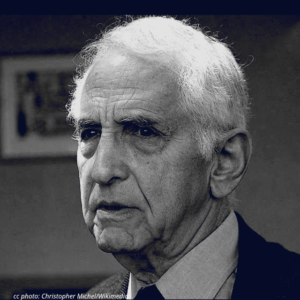
Next the defense called Pentagon Papers whistleblower Daniel Ellsberg to testify about AssangeвҖҷs motivations, EllsbergвҖҷs own experience being prosecuted under the Espionage Act, and his view on the unredacted publication of State Department cables.
Ellsberg explained in his witness statement that he copied and released the Pentagon Papers, comprising 7,000 Top Secret files, to the New York Times in 1971 because they demonstrated that the United States government had вҖңstarted and continuedвҖқ the Vietnam War вҖңwith the knowledge that it could not be wonвҖқ and successive presidential administrations lied to Congress and the public about it.
вҖңMy own actions in relation to the Pentagon Papers and the consequences of their publication have been acknowledged to have performed such a radical change of understanding. I view the WikiLeaks publications of 2010 and 2011 to be of comparable importance.вҖқ
In court, Ellsberg testified about Julian AssangeвҖҷs political opinions, his opposition to war and believe that justice is brought about by transparency and accountability. He and Assange both felt that both the Afghan and Iraq wars were wrong and that it was вҖңclear even to the laymanвҖқ that the Iraq war was a вҖңcrime.вҖқ an вҖңaggressive warвҖқ as defined by the United Nations. He compared the war in Afghanistan to the war in Vietnam, the former a вҖңrerunвҖқ of the latter, as perpetrators of both knew that they could only result in a seemingly endless вҖңstalemate.вҖқ
What had changed, Ellsberg said, was that in Afghanistan (and in Iraq), horrific abuses, illegal killings and war crimes had become normalized, so much so that they appeared in вҖңlow-level field reports.вҖқ The Iraq and Afghanistan War Logs are marked up to Secret, whereas the Pentagon Papers were all Top Secret. Ellsberg said he вҖңwouldвҖҷve been astonished to see similar reports in VietnamвҖқ in low-level classification. They are now so routine, he said, that they appear in the leaked logs as just the normal course of war.
The famous вҖҳCollateral MurderвҖҷ video illustrates this further. The title of the video, taken from a U.S. Army Apache helicopter and documenting the gunning down of civilians including journalists, children, and their rescuers, was controversial when it was released in 2010. Assange was criticized for labeling the actions вҖңmurder,вҖқ but to Ellsberg, the title caught his eye for a different reason:
вҖңThere was no question to me that what I was witnessing at the time was murder. In fact, the problematic word in the title was вҖҳCollateralвҖҷ, implying that it was unintended. This was murder, and a war crime. So I was very glad that the American public was confronted with this.вҖқ
Ellsberg spoke of the decision to leak them:
вҖңI was very impressed that the source of these documents, Chelsea Manning, was willing to risk her liberty and even her life to make this information public. It was the first time in 40 years I saw someone else doing that, and I felt kinship toward her.вҖқ
Ellsberg and the Espionage Act
Asked if he was able to explain his own motivations when he was charged under the Espionage Act by the Nixon administration, Ellsberg said,
вҖңNo, absolutely notвҖҰI had withheld, in the nearly 2 years between the revelations and their release, discussion as to what led me to do that in the hopes that I could testify under oath, with sufficient solemnity and credibility.вҖқ
But at his 1973 trial, when his lawyer asked Ellsberg on the stand to explain his motivation, the government objected that the question was irrelevant, and the judge agreed. This established the Espionage Act as a вҖңstrict liability offense,вҖқ with every prosecution under the law in the years since handled in the same way.
вҖңThe Espionage Act does not allow for whistleblowing, to allow you to say you were informing the polity. So I did not have a fair trial, no one since me had a fair trial on these charges, and Julian Assange cannot remotely get a fair trial under those charges if he were tried.вҖқ
False Dichotomy
On cross-examination, the prosecution attempted to draw out a distinction between Ellsberg and Assange by citing Floyd Abrams, who along with James Goodale argued for the New York TimesвҖҷ right to publish the Pentagon Papers, as Abrams has written that he believes WikiLeaks is different from the EllsbergвҖҷs release. But Ellsberg said Abrams вҖңdoesnвҖҷt understand my motives or JulianвҖҷsвҖқ since he didnвҖҷt actually read through all the Pentagon Papers and didnвҖҷt discuss EllsbergвҖҷs motivations with him.
Ellsberg added that this false dichotomy isnвҖҷt limited to Abrams. вҖңAnd IвҖҷd say people who criticize Ed Snowden, Chelsea Manning, Julian Assange, they donвҖҷt want to criticize me вҖ” it is entirely misleading,вҖқ he said.
Ellsberg said at the time of his releases, he was harshly criticized, the way Snowden and Manning and Assange are now. Then for a long time he was ignored. And now that these new releases have come out, WikiLeaksвҖҷ in 2010 and SnowdenвҖҷs NSA revelations in 2013, all of a sudden commentators were contrasting them with him, referring to Ellsberg positively вҖңto draw some contrast between us.вҖқ
вҖңI totally disagree with the вҖҳgood Ellsberg / bad AssangeвҖҷ theory,вҖқ he said. вҖңExcept for the computer aspects which didnвҖҷt exist back then, I see no difference between the charges against me and the charges against Assange.вҖқ
In addition to the personalities involved, the prosecution also attempted to draw a contrast between AssangeвҖҷs and EllsbergвҖҷs releases, in particular by highlighting the harm the government alleges was caused by WikiLeaks disclosures.
Prosecutor James Lewis cited the fact that Ellsberg withheld 4 volumes of documents from the media, though he gave the full set of files to the Senate, as well as the fact that Abrams quoted Ellsberg as having said, вҖңI donвҖҷt want to get in the way of diplomacy,вҖқ whereas, Abrams says, Assange clearly does. The prosecution painted this as Ellsberg wanting to protect his country from harm. But Ellsberg clarified that at the time of his release, the U.S. and Vietnam had been engaged in peace negotiations. They were not progressing very well, but the talks were taking place, and Ellsberg didnвҖҷt want the release to be used as a pretext for withdrawing from peace talks.
Ellsberg recalls his own full quote: вҖңI want to get in the way of the war, I donвҖҷt want to get in the way of negotiations.вҖқ
This is also the reason Ellsberg didnвҖҷt redact a single word of his releases, even allowing the publication of the name of a clandestine CIA agent (who he knew was already known in Vietnam). He didnвҖҷt want the public to think that the files had been edited or interfered with. He wanted to show there was no adequate justification for the killings in Vietnam, and he didnвҖҷt want to allow any implication that something he redacted covered up such a justification.
WikiLeaks did not cause harm
Lewis still attempted to get Ellsberg to concede that WikiLeaksвҖҷ documents were more harmful.
вҖңAre you saying no one was placed in grave danger?вҖқ, he asked.
вҖңIt appears not, as there was no harm, as shown by the Defense Department,вҖқ Ellsberg said, referring to the fact that in Chelsea ManningвҖҷs court-martial, the government was forced to admit that it could not point to a single death that resulted from WikiLeaksвҖҷ releases.
Lewis then spent several minutes reading aloud from an affidavit from assistant U.S. attorney Gordon Kromberg on the governmentвҖҷs allegations of harm caused by WikiLeaks releases. These included many allegations and claims that were already attempted in ManningвҖҷs trial, such as the fact that WikiLeaks files were found in Osama Bin LadenвҖҷs compound, or the Taliban saying they would read through the datasets for informants to punish. These arguments were put forward in the governmentвҖҷs attempt to prosecute Manning for вҖңaiding the enemyвҖқ вҖ” she was acquitted on that charge.
At one point, Ellsberg interrupted the prosecutor to ask if he would ever get the chance to respond to them. At the end of LewisвҖҷ recitation, Ellsberg said, вҖңI find the government recounting of these allegations to be cynical. Am I right in that none of these people actually suffered physical harm?вҖқ
Lewis responded, вҖңThe rules are that you do not get to ask the questions.вҖқ
Ellsberg reminded the court that the U.S. government was specifically asked to help redact the documents and declined to do so. Furthermore, he said, if there really was massive harm caused by the releases, he would have expected the government to show something far more concrete, or the Taliban to have pointed to actual informants they punished rather than merely talking about it.
Lewis spoke about some named informants having to flee their countries or their posts.
вҖңI understand the anxiety that these people named might be harmed. And that anxiety is caused by the refusal to help WikiLeaks redact. But aside from that, people having to leave the country, must be put in the context of Mr Assange trying to end a war that has caused 37 million refugees and over a million deaths.вҖқ

SEPTEMBER 15, 2020
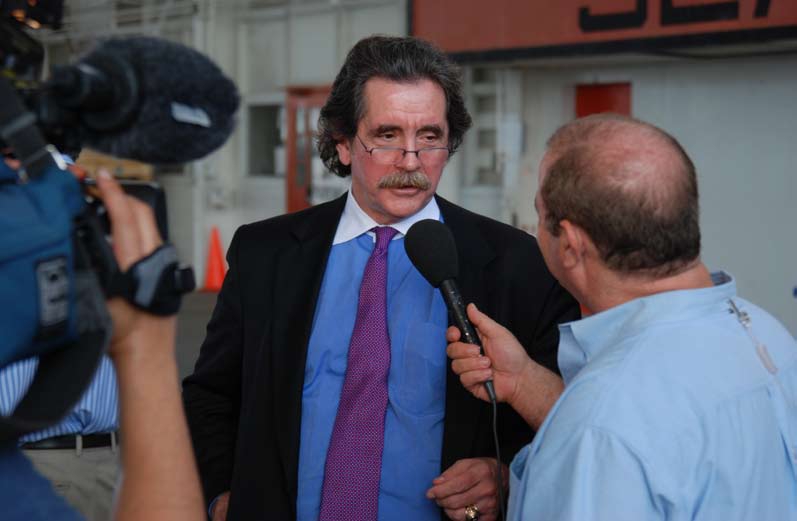
- See previous daily reports here and a video recap of last weekвҖҷs proceedings here
- See an overview of USA v. Julian Assange here
- See a thread of live-tweets of todayвҖҷs hearing here
- See yesterdayвҖҷs videos about the effects of Julian AssangeвҖҷs imprisonment here and one about freedom of the press here
Eric Lewis: Under Trump, Justice Dept. is Prosecutorial Hand of the President
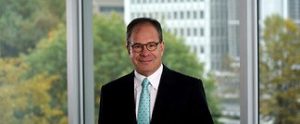
Continuing testimony that began yesterday, U.S. lawyer Eric Lewis explained that under President Trump, the Department of Justice is not an independent agency but rather one that takes its direction from the top down. Lewis said that he isnвҖҷt questioning the integrity of lower-level prosecutors, but they are taking direction from their Attorney General.
Lewis cited comments from Jeff Sessions, who was US Attorney General at the time AssangeвҖҷs indictment was brought, in which he called AssangeвҖҷs arrest a вҖңpriority.вҖқ The top-down approach continued under William Barr, Lewis said, citing more than a thousand former federal prosecutors who co-signed a statement condemning President TrumpвҖҷs вҖңobstruction of justice.вҖқ
вҖңJeff Sessions pressured the Eastern District of Virginia to bring the case. IвҖҷm not saying individual prosecutors are acting in bad faith, IвҖҷm saying the department is highly politicized and many Americans would agree with that sentiment.вҖқ
The comments came amid cross-examination, as U.S. prosecutors are attempting to undermine the dense claim that the prosecution of Assange is politically motivated. Lewis pointed again to the fact that the Obama administration made a clear decision not to prosecute Assange in 2013. The facts of the case are from 2010 and 2011 but the U.S. didnвҖҷt indict until 2018; the only difference between then and now is who is in the White House.
вҖңThis case was dormant when the Trump administration began,вҖқ Lewis said. вҖңThe evidence hasnвҖҷt changed. Witnesses havenвҖҷt changed. The First Amendment hasnвҖҷt changed.вҖқ
175 years in prison
The prosecution also attempted to cast doubt on the claim that Assange would face up to 175 years in prison if he is extradited to the United States. But Lewis said there is significant reason to believe that a judge would sentence him extremely aggressively. Assange would be tried in the Eastern District of Virginia under District Judge Claude M Hilton, who Lewis said is known as a вҖңtough sentencerвҖқ and who threw Chelsea Manning in prison for contempt of court when she refused to testify in a WikiLeaks grand jury. Furthermore, U.S. officials have described WikiLeaksвҖҷ releases as the biggest leak publications in history and has attempted to argue that U.S. adversaries benefited from the releases. Upon Chelsea ManningвҖҷs conviction of 10 counts under the Espionage Act (whereas Assange faces 17), Lewis noted, the government asked for a 60-year sentence, and she was sentenced to 35.
The prosecution attempted to invoke the Espionage Act cases of whistleblowers Terry Albury, Reality Winner, and Jeffrey Sterling as evidence that these cases often result in shorter sentences. But Sterling himself tweeted in response,
–
In February, Sterling wrote, вҖңReject Using My Unjust Conviction Against Julian Assange.вҖқ
Lewis noted that the U.S. Dept of Justice has made several adjustments to the second superseding indictment that it brought in June 2020. Despite adding no new charges, the indictment adds new language that, Lewis explained, increases the likelihood of a higher sentence. These added factors include other co-conspirators the government alleged were under AssangeвҖҷs direction, reference to a вҖҳTeenagerвҖҷ among those (this refers to Siggi Thordarson, Icelandic informant), вҖңspecial skillsвҖқ (here could refer to AssangeвҖҷs alleged computer capabilities), and the fact that the State Department cables allegedly included names of U.S. government employees (at embassies around the world). These all lead Lewis to believe the newest superseding indictment substantially increases a potential sentence for Assange.
Abusive conditions await Assange
Finally, Lewis testified to the conditions Assange would be likely to face in a U.S. prison, both pre- and post-trial. Pre-trial, Assange would be held at the Alexandria Detention Center, and Lewis believes he would be held under both SAMs, which gags a defendant and permits monitoring of attorney-client communications, and the Classified Information Procedures Act (CIPA), which curtails the defendantвҖҷs ability to review classified documents in his/her case.
ItвҖҷs also highly likely Assange would be held in administrative segregation (вҖҳad-seg), due to his notoriety and mental health issues, and the combination of ad-seg and SAMs would be tantamount to solitary confinement and extremely dangerous to AssangeвҖҷs psychological health. Lewis testified that two-thirds of all incidents of suicide and self-harm among inmates take place in segregated housing.
Tom Durkin: Assange would not get a fair trial in the United States
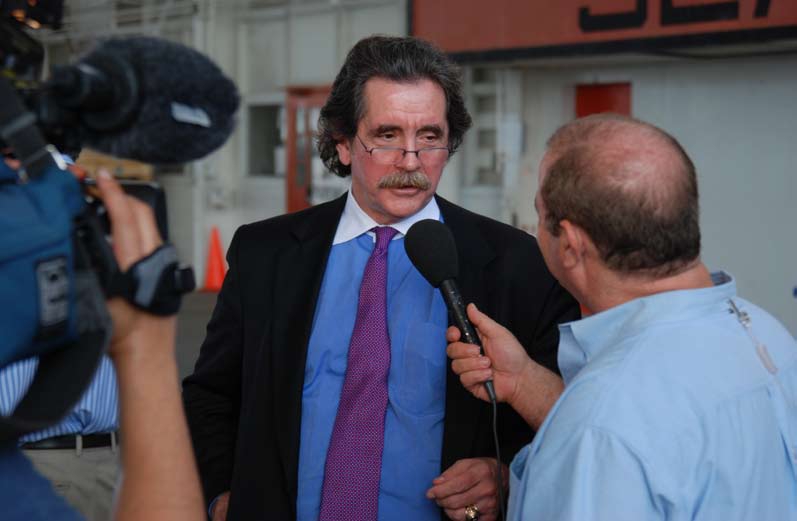
Next, the defense called Thomas Durkin, a criminal defense attorney from Chicago, to discuss how a trial against Assange would play out in the U.S. if he were extradited.
вҖңI donвҖҷt believe he would be able to get what I would consider to be a fair trial in the U.S.вҖқ, Durkin said, because the case is the result of a highly politicized prosecution, CIPA restrictions would severely hamper the defense, and there would be huge pressure to accept a plea deal simply to avoid an exorbitant prison sentence.
Durkin corroborated what several witnesses have said thus far, that the Obama administrationвҖҷs decision not to prosecute contrasted with the Trump administrationвҖҷs decision to prosecute several years later, without new evidence, is clear evidence that the case is political.
The CIPA restrictions, he said, would mean Assange would not be able to view classified documents in the case, contrary to what U.S. assistant attorney Gordon Kromberg argued in submissions for the prosecution.
As for the pressure for a plea deal, Durkin testified that there is a built-in incentive to take a plea, in that a вҖңtimely guilty pleaвҖқ automatically takes the sentence down a level within sentencing guidelines, which Durkin referred to as вҖңdraconian.вҖқ This is commonly referred to as a вҖңtrial tax,вҖқ meaning defendants are punished for taking their own cases to trial rather than pleading ahead of time.
Durkin said that the prosecution appears to argue that Assange is more liable than Chelsea Manning, indicating the government would seek a longer sentence than the 60 years it sought for Manning.
Furthermore, Durkin testified that any plea deal would require вҖңfull cooperation,вҖқ meaning the government would very likely require Assange to reveal WikiLeaksвҖҷ sources in order to obtain a plea agreement.
Tomorrow, former Der Spiegel journalist John Goetz and Pentagon Papers whistleblower Daniel Ellsberg are scheduled to testify.
SEPTEMBER 14, 2020
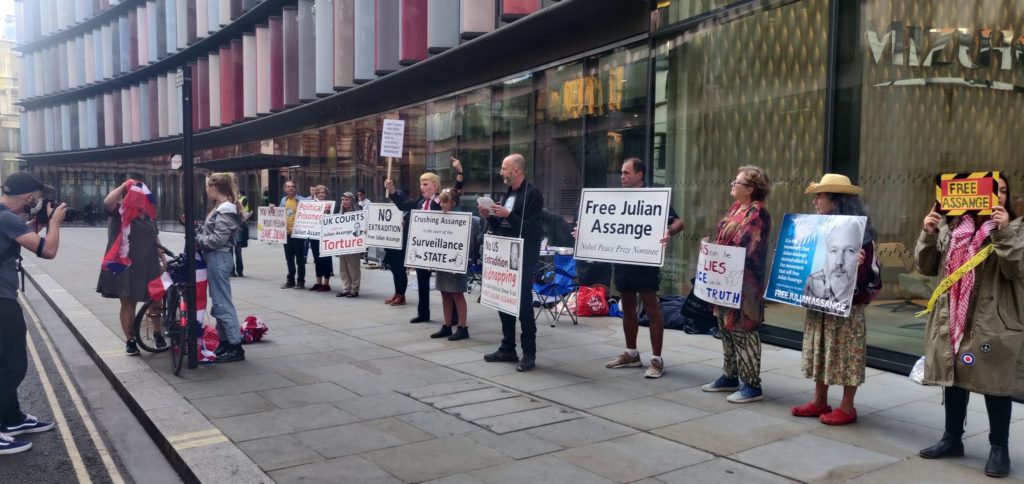
- See previous daily reports here and a video recap of last weekвҖҷs proceedings here
- See an overview of USA v. Julian Assange here
- See a thread of live-tweets of todayвҖҷs hearing here
Eric Lewis: Julian Assange shouldnвҖҷt be extradited, would face solitary confinement in the United States
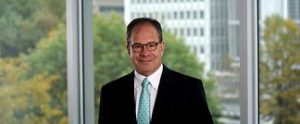
Paused last week due to a COVID19 scare, Julian AssangeвҖҷs extradition hearing resumed today with witness testimony from Eric Lewis, chairman of the board of Reprieve and a lawyer who вҖңrepresents Guantanamo and Afghan detainees in litigation, seeking redress and accountability for torture and religious abuse while in US custody.вҖқ
Lewis confirmed that before being asked to provide expert testimony on this case, he opined in the press that he believes Assange shouldnвҖҷt be extradited or prosecuted, and while he handled the facts objectively in providing his witness statement, those are still his views today. In May 2019, Lewis wrote, вҖңAs an American lawyer, I donвҖҷt want to see Julian Assange extradited to my country.вҖқ
While LewisвҖҷ testimony largely deals with his experience defending clients in the US federal justice system and the conditions they face, he first spoke about the significance of the Trump administration deciding to prosecute Assange in contrast to the Obama administrationвҖҷs decision not to. Echoing previous witnesses, Lewis singled out comments from then-CIA director Mike Pompeo and then-US Attorney General Jeff Sessions in April 2017 evincing particular zeal in prosecuting Assange. Pompeo castigated WikiLeaks and Assange and declared he would be allowed no First Amendment rights, while Sessions announced that AssangeвҖҷs arrest was a вҖңpriorityвҖқ of his. Lewis noted that this meant Sessions was specifically directing federal prosecutors to take another look at a case in which the Obama Administration had explicitly decided not to bring charges.
The fact that WikiLeaks documents would be вҖңessentialвҖқ in war crimes prosecutions in the International Criminal Court (ICC), according to Lewis, may also play a factor here, as President Trump, former Sec. of Defense John Bolton, and Sec. of State Mike Pompeo have all criticized the ICC. Furthermore, President Trump has issued an вҖҳExecutive Order on Blocking Property Of Certain Persons Associated With The International Criminal Court.вҖҷ
Lewis also remarked on the superseding indictment against Assange, adding 17 counts to the previous single charge. Lewis said these charges under the Espionage Act could easily have been all charged together, but separating them out in this way indicates a desire to maximize AssangeвҖҷs potential jail time, as each new count carries up to 10 years in prison.
Lewis then spoke about the conditions Assange would be likely to endure, including Special Administrative Measures (SAMs) and solitary confinement.
The Center for Constitutional Rights has documented the effects of SAMs in a 2017 report, вҖңThe Darkest Corner: Special Administrative Measures and Extreme Isolation in the Federal Bureau of PrisonsвҖқ:
вҖңSAMs are the darkest corner of the U.S. federal prison system, combining the brutality and isolation of maximum security units with additional restrictions that deny individuals almost any connection to the human world. They prohibit prisoners who live under them from contact or communication with all but a handful of approved individuals, and impose a second gag on even those few individuals. The net effect is to shield this form of torture in our prisons from any real public scrutiny.вҖқ
The CCR has also written вҖҳSolitary Confinement: Torture in U.S. PrisonsвҖҷ вҖ” the report provides background context for LewisвҖҷ testimony on solitary, which the Bureau of Prisons conceals by referring to it as Administrative Segregation.
Lewis and the prosecution engaged in a long back-and-forth about how SAMs and solitary are applied, what conditions are required, whether they are вҖҳarbitraryвҖҷ and whether they violate the European Convention on Human Rights. Lewis disagrees with the prosecution particularly on whether the US Bureau of Prisons fairly applies SAMs and solitary, finding it extremely likely theyвҖҷd be applied here due to the likely invocation of вҖңnational security interests.вҖқ He explained the вҖңunique difficultiesвҖқ presented under both SAMs and solitary in attorney-client defense preparation, particularly in a case of this magnitude.
Technical issues with LewisвҖҷ videolink before the lunch break and continued afterward. The court decided to adjourn for the day to attempt to resolve them, so court will resume with LewisвҖҷ testimony tomorrow at 10am London time.
SEPTEMBER 10, 2020
Julian AssangeвҖҷs extradition hearing was abruptly paused today when the court was notified that a member of the prosecution had come down with COVID19-like symptoms. As Kevin Gosztola notes, the scare came amid a new spike in the United Kingdom.
Because members of the defense and Assange himself are at heightened risk, the defense asked the judge to pause the hearings as we await the prosecutorвҖҷs test results. Those results ultimately came back negative, so we are scheduled to resume proceedings on Monday , September 14.
In the meantime, catch up with a video recap of the first week of hearings here:

SEPTEMBER 9, 2020
- See our report from Day 1 and our report from day 2
- See the live-tweeted coverage of todayвҖҷs hearing in one thread
Professor Paul Rogers on TrumpвҖҷs politically motivated prosecution
Paul Rogers, Emeritus Professor of Peace Studies at Bradford University, took the stand by video link to testify about Julian AssangeвҖҷs political views and how they factor into the Trump administrationвҖҷs prosecution of Assange for publishing.
Rogers reviewed AssangeвҖҷs speeches, including an anti-war speech in 2011 in London and a speech to the UN following the release of Iraq and Afghan war logs, as well as Mairead MaguireвҖҷs nomination of Assange for the Nobel Peace Prize in 2019. Rogers concluded that AssangeвҖҷs views donвҖҷt fall into traditional liberal or conservative belief systems but are rather more libertarian, anti-war, and based on values of transparency and accountability.
On the stand, Rogers talked about how WikiLeaks put these values into practice with the war logs publications, and he contextualized the releases with changing opinions in America regarding the wars in Iraq and Afghanistan:
вҖңPossibly the most important part of the whole thing,вҖқ he said, was that WikiLeaksвҖҷ releases showed 15,000 previously uncounted civilian casualties, вҖңbringing to the American public a very disturbing aspect of the whole war.вҖқ
As Rogers puts it in his statement,
The political objective of seeking to achieve greater transparency in the workings of governments is clearly both the motivation and the modus operandi for the work of Mr Assange and the organisation WikiLeaks. Its manifestation, as is set out in the study by Professor Benkler, has constituted a wholesale alteration of accessing and making available for public information, the secrets that governments wish to remain unknown to their general populations. The subject matter of the charges Mr Assange currently faces involve strong examples of the clash of these positions both in their content and scope, and in the reaction of government.
In his oral testimony, Rogers explained that these views and motivations put him in contrast with successive U.S. administrations but particularly in contrast with the Trump administration.
It is clear that Assange is being opposed because of the success of WikiLeaks in bringing information to the public, he said. This is dangerous to the Trump administration: вҖңthe root of it is that Assange and what he stands for represents a threat to normal political endeavor.вҖқ In addition to opposing AssangeвҖҷs words and views, the fact that Obama didnвҖҷt prosecute should to some extent be considered in why Trump is prosecuting.
Prosecutor James Lewis QC sought to undermine AssangeвҖҷs political views by bringing up his views on corporations and NGOs, but Rogers explained that вҖңpolitical opinionвҖқ isnвҖҷt just about government leaders, that the definition of political opinion has changed significantly in the last 50 years, and that Assange has a view on вҖңtransnational elites.вҖқ
Asked if simply being a journalist necessitated political opinions, Rogers explained that itвҖҷs a complex question, that deciding what to publish and what not to constitutes a political opinion, but Lewis complained that his answers were too long, not yes or no.
Lewis further sought to portray Rogers as biased toward Assange and the defense. He asked why Rogers didnвҖҷt include in his statement, in which he referenced views of other experts like Noam Chomsky and Carey Shenkman, the views of assistant U.S. attorney Gordon Kromberg, which defended the prosecution of Assange as a criminal matter, not a political one.
Rogers responded that he takes it as read that federal prosecutors at the lower level act in good faith, that they do as theyвҖҷre instructed in accordance with the law, but that the wider political context вҖ” namely that the Obama administration didnвҖҷt prosecute and the Trump admin did, and the Trump administration represents a marked shift in the U.S. political situation вҖ” far outweighs the statements of a U.S. attorney.
The prosecution then suggested that the Obama administration may not have prosecuted Assange because he was in the Ecuadorian Embassy at the time:
Lewis: Was it possible to arrest Mr Assange in 2013?
Rogers: Is it necessary to be able to arrest someone to bring a prosecution?
Lewis: What would be the point if heвҖҷs hiding in the embassy?
Rogers: Well, to put pressure on him. It would have made very good sense to bring it at that time, to show a standing attempt to bring Mr Assange to justice.
Lewis reviewed the same items as he did with Feldstein yesterday, including WikiLeaksвҖҷ lawyer and editor suggesting they still believed charges were possible, but again and again Rogers brought the discussion back to the wider context, and the fact that the Trump administrationвҖҷs views more broadly have to be considered. Statements by then-CIA director Mike Pompeo, then-Attorney General Jeff Sessions and others have to be part of the determination. Rogers also referenced ObamaвҖҷs commutation of Chelsea ManningвҖҷs sentence. The Trump administration wasnвҖҷt happy about that, but a commutation canвҖҷt be reversed by a subsequent administration, so this could be TrumpвҖҷs way of responding to that.
Rogers hammered home that by calling this a вҖңpolitically motivated prosecution,вҖқ he isnвҖҷt saying that lower-level federal prosecutors are acting in bad faith. Rather, he said, the influence comes from the top down.
Court is in recess for lunch. Trevor Timm of the Freedom of the Press Foundation will testify after the break.
Trevor Timm: These charges would вҖҳradically rewriteвҖҷ the First Amendment
Founder of the Freedom of the Press Foundation, which advocates for reportersвҖҷ rights and tracks violations to press freedom across the United States, Trevor Timm took the stand by videolink this afternoon to talk about the dangers the indictment against Assange poses to journalists and their sources.
Timm objects to the indictment on the grounds that it threatens to criminalize source protection and the passive receipt of government documents as well as pure publication. He concluded that вҖңIt would be a radical rewrite of the First Amendment if the government were to go forward with these charges.вҖқ
Protecting your sources
As Timm writes in his statement,
вҖңThe decision to indict Julian Assange on allegations of a вҖңconspiracyвҖқ between a publisher and his source or potential sources, and for the publication of truthful information, encroaches on fundamental press freedoms.вҖқ
Freedom of the Press Foundation has helped many news organizations adopt SecureDrop, an anonymous and secure submission system for sources to safely send documents to journalists undetected. While a largely unused practice when WikiLeaks pioneered it before 2010, major news outlets around the world make use of SecureDrop, and some of them explicitly ask for leaks of government documents.
The way this indictment is written, particularly the charge alleging Assange engaged in a conspiracy with source Chelsea Manning to crack a military computer password in order to remain anonymous, would make this extremely common news gathering illegal. вҖңI donвҖҷt think itвҖҷs an exaggeration to say this indictment would criminalize national security journalism.вҖқ
вҖңMaterials journalists often write about and print do not magically land on their desks,вҖқ he said. They talk to sources, ask for clarification, ask for more information. вҖңThis is standard practice for journalists.вҖқ
News outlets and press freedom observers agree. Timm said,
вҖңThis is almost a consensus opinion among press freedom groups and media lawyers who have looked at this indictment. This is why newspapers, even those who have criticized Mr Assange, have condemned this indictment.вҖқ
Espionage Act: over-broad and over-used
Beyond the effort to criminalize source-protection and news gathering, Timm is extremely concerned about the other charges in the Assange indictment under the Espionage Act of 1917. Some charges criminalize publishing and for soliciting information, and some of the charges are even more broad. вҖңJust the mere thought of obtaining these documents,вҖқ Timm said, вҖңthe US government is saying is potentially criminal.вҖқ
Timm discussed previous efforts to go after journalists under the Espionage Act, efforts which have failed under legal scrutiny. вҖңIn each and every case,вҖқ Timm said, вҖңthe government concluded or was forced to concludeвҖқ that an Espionage Act prosecution would violate First Amendment protections, including the Obama administrationвҖҷsвҖҷs 2013 determination not to prosecute WikiLeaks.
Each Espionage Act charge carries 10 years in prison, allows no public interest defense, and only requires the government prove harm could вҖңpossiblyвҖқ have been caused by leaking or publishing.
James Lewis QC, cross-examining Timm for the prosecution, highlighted TimmвҖҷs claim in his witness statement that Trump is waging a вҖңwar on journalism.вҖқ He sought to undercut the claim by pointing out that the U.S. Department of Justice has explicitly said that they do not consider Assange to be a journalist and that they arenвҖҷt going after journalists.
Timm responded, вҖңIn the US, the First Amendment protects everyone. Whether you consider Assange a journalist doesnвҖҷt matter, he was engaging in journalistic activity.вҖқ
Lewis tried again, emphasizing that the DOJ specifically went вҖңout of its wayвҖқ to say they donвҖҷt target journalists.
Timm said,
вҖңMy opinions are not based on a Justice Department press release but on what is actually contained in the indictment. There are several charges that deal with the mere fact that WikiLeaks had these in their possession. You say there are three charges dealing with publication just of documents with unredacted names, but the rest of the charges deal with all of these document sets, and this criminalizes journalism.
The aspect of criminalizing publication worries me greatly, but there are many other charges that are as worrying or more so, that could criminalize journalistic practice whether you consider Mr Assange a journalist or not.вҖқ
Lewis tried to get Timm to comment on the 2011 unredacted publication of the State Department cables, but Timm made clear that whether WikiLeaks has вҖңperfect editorial judgmentвҖқ shouldnвҖҷt matter as to whether the action is illegal. Furthermore, he said, вҖңI certainly donвҖҷt think the US Government should be the one to determine whether this was good editorial judgment.вҖқ
Trump: Modern-day Nixon
вҖңTrump has the most confrontational approach to the media since Nixon,вҖқ Timm said. He referenced Trump tweeting 2,200 times about the press, including calling them the вҖңenemy of the people.вҖқ Timm said, вҖңThis case is the perfect opportunity for him to create a precedent to punish the rest of the media.
вҖңTo me itвҖҷs very telling that TrumpвҖҷs is the first one to try to bring a case like this since the Nixon administration.вҖқ
SEPTEMBER 8, 2020
AssangeвҖҷs Extradition Hearing Resumes: 8 September 2020
See our report from Day 1 of these proceedings here. Yesterday, the judge rejected the defenseвҖҷs request to proceed without the new allegations in the U.S.вҖҷs extremely late superseding indictment, then rejected the defenseвҖҷs request for more time to prepare to deal with these new allegations. Professor Mark Feldstein began his testimony on investigative journalism. Likely to testify today are journalists Patrick Cockburn and Nicolas Hager, and Pentagon Papers whistleblower Daniel Ellsberg.
See live-tweeted coverage of todayвҖҷs hearing in one thread.
Clive Stafford-Smith explains using WikiLeaks docs in legal cases
Clive Stafford Smith, a U.S.-U.K. dual national and the founder of Reprieve, which defends prisoners detained by the U.S. at GuantГЎnamo Bay and others in secretive detention localities around the world, testified about the importance of WikiLeaks material in their litigation. He first discussed the utility of WikiLeaks disclosures in litigation in Pakistan relating to drone strikes and the вҖңseachangeвҖқ in attitudes towards US drone strikes in Pakistan.
Regarding rendition, assassinations, torture exposed in WikiLeaks documents, Stafford-Smith said, вҖңSpeaking as a U.S. citizen, it is incredibly important that it stopped вҖҰ I feel that my countryвҖҷs reputation was undermined and criminal offenses were taking place.вҖқ
вҖңThe litigation in Pakistan would have been very, very difficult and differentвҖқ if it werenвҖҷt for WikiLeaks disclosures.
вҖңThe most disturbing thing is that the assassination program with respect to terrorists leaked over to narcoticsвҖҰ.they were targeting people for death for their involvement in drug trade because it was seen as funding terrorism. I could go onвҖҰвҖқ
Assassination programs вҖңare not only unlawful but morally and ethically reprehensible,вҖқ he said, and journalists being targeted in war zones by the US is вҖңdeeply troubling, a monumental criminal offense.вҖқ
The defense questioning then turned to the importance of WikiLeaks releases on Guantanamo.
вҖңIt is difficult and hostile sometimes вҖ“ this is one of the cases I have received death threats for representing these peopleвҖҰbut your problem is always two-fold, the prisoners in Guantanamo donвҖҷt know what they are charged withвҖҰ.second, unfortunately people never get to meet prisoners in Guantanamo and judge their credibility, so proving what happened involved more than just saying it but travelling round the world and gathering proofвҖқ
Stafford-Smith explained that itвҖҷs complicated as to whether the GTMO releases are positive or negative in his view:
вҖңThose leaks are the very worst that the US authorities confect about the prisoners I have represented. But on the other hand, they are really important because the world didnвҖҷt know the allegations that were being made against my client.вҖқ
The best example I am able to give you,I was frustrated when I first read those WikiLeaks documents because I thought they would leak what I get to seeвҖҰ.what was useful was the 13 pages that the US government alleged against my client, which up until that point I couldnвҖҷt discuss it with anyone, and finally I was able to declassify their assertions and prove that each of their allegations was total nonsense. No one has been ordered for release in America but it was certainly helpful to be able to disprove it.вҖқ
вҖңI found it immensely frustrating that the world didnвҖҷt know about the unreliability of the evidence against my clientsвҖҰwhat others have done by taking the WikiLeaks documents, and I credit here Andy Worthington, is to analyze the number of times certain informants were the named basis for detaining prisoners.вҖқ
вҖңWhile it is important representing the client, and it doesnвҖҷt show the world what is actually going on there. My experience with Guantanamo is that if we can open it up to public inspection to see what is really happening there, then they will close it down because its just not what it is advertised as.вҖқ
вҖңI say this more in sadness than in anger. Before 2001, I would never have believed that my government would do what it did. We are talking about criminal offenses of torture, kidnapping, rendition, holding people without the rule of law and, sad to say, murder.вҖқ
On enhanced interrogation techniques:
вҖңI have had a project of comparing the methodologies that my government uses on my clients to what they used in Spanish InquisitionвҖҰhanging people by the wrist while their shoulders slowly dislocateвҖҰ.the first thing I do is to apologize.вҖқ
вҖңAs you go through the documentation Wikileaks leaked, there are all sorts of things identified, including where people are taken and renditionedвҖҰand that was the case in BinyamвҖҷs case.вҖқ
Clive Stafford-Smith says WikiLeaks and those associated could be subjected to U.S. sanctions under the new ICC sanctions regime because of the role Wikileaks has played in the accountability efforts of U.S. officials involved in war crimes.
вҖңTo threaten and impose sanctions is unlawful, and what you are doing here today could justify sanction under the terms of the Executive Order.вҖқ
Anyone can be sanctioned who is seeking to assist in an investigation which could lead to ICC investigation, which is what Wikileaks does, so that is covered by the US sanction regime.вҖқ
Prosecution cross-examination misleads on the charges
U.S. prosecutor James Lewis repeatedly tried to get Stafford-Smith to concede that none of the WikiLeaks cables mentioned in his witness statement are the subject of charges. Lewis is trying to establish that the indictment of Assange only deals with cables that name specific names of informants. But the defense points out that the prosecution is incorrectly stating that there is no reference to publishing вҖ“ Assange is in fact being charged for вҖңcommunicatingвҖқ and вҖңobtainingвҖқ classified information, and these charges capture all the documents, not just specific cables referenced in the pure publication counts.
Furthermore, Stafford-Smith repeatedly explained to the prosecutor that Lewis doesnвҖҷt understand how the U.S. prosecutes these cases вҖ” just because they arenвҖҷt in the indictment they will be used against him. Lewis kept saying that heвҖҷs only charged with naming names so the other cables released are irrelevant.
Fed up with this back and forth, Assange himself spoke from the dock to say, вҖңThis is nonsense,вҖқ the US pretense that heвҖҷs not being charged with publishing classified information, just naming names, is вҖңnonsense.вҖқ
вҖңApparently my role is to sit here and legitimate what is illegitimate by proxy,вҖқ Assange said.
The judge interrupted Assange to reprimand him for speaking out of turn.
вҖңI understand of course you will hear things most likely many things that you do not like and you would like to intervene but it is not your role.
вҖңYour remaining in court is something the court would wish for. But the court could proceed without you.вҖқ
The prosecution closed its cross-examination by citing David LeighвҖҷs book with reference to AssangeвҖҷs comments on informants, asks if Stafford-Smith agrees with LeighвҖҷs or AssangeвҖҷs view of informants. Stafford-Smith says he wouldnвҖҷt judge anyone based on a book.
Feldstein gives historical context for WikiLeaksвҖҷ journalism

Journalism professor Mark Feldstein took the stand to continue his testimony which began yesterday, picking up where he left off on the long history of journalists using classified information in their reporting.
Feldstein confirmed that soliciting information is вҖңstandard journalistic behavior.вҖқ When teaching journalism, Feldstein talks about asking sources for evidence, actively seeking information, working with them to find documents that are newsworthy, and directing them as to what to find out. вҖңItвҖҷs all routine,вҖқ he said.
Also routine are efforts to conceal sourcesвҖҷ identities. вҖңTrying to protect your source is a journalistic obligationвҖқ Feldstein said, adding, вҖңWe use all kinds of techniques to protect them, including payphones, anonymity, encryption, removing fingerprints from documents, reporters do this all the time.вҖқ
Later, the prosecution would attempt to draw substantial differences between the New York Times and WikiLeaks, suggesting journalists donвҖҷt steal or unlawfully obtain information. While agreeing that journalists are not above the law, Feldstein says that itвҖҷs a вҖңslippery slopeвҖқ as to what constitutes вҖңsolicitingвҖқ information.
вҖңWe journalists are not passive stenographers,вҖқ he said. вҖңTo suggest receiving anonymously in the mail is the only way is wrong.вҖқ
Asked if he himself has published this type of information, he said, вҖңYeah, I didnвҖҷt publish a lot of classified documents but my entire career virtually was soliciting and publishing secret information.вҖқ
On the question of allegations that publishing names necessarily causes harm, Feldstein said that itвҖҷs easy for the government to claim possible harm because itвҖҷs impossible to prove. вҖңScant evidence that national security is harmedвҖқ by government disclosures, he said, and вҖңnational security is often used as a shield to hideвҖқ embarrassing or bad actions.
Feldstein used the Pentagon Papers as an example, where the government prosecutors at the time went to court alleging that these documents exposed war plans, identified CIA officials, and could even prolong the war. Prosecutors told the court that it would cause вҖңimmediate and irreparable harm,вҖқ and only years later did one such prosecutor admit he saw no harm from the releases. But why lie at the time? We now know that President Nixon himself instructed his attorney general to smear the New York Times as вҖңdisloyal,вҖқ in any way he could.
The Trump administrationвҖҷs вҖңpolitically motivated prosecutionвҖқ
The prosecution made repeated efforts to characterize the investigation into WikiLeaks from 2010 to 2020 as one ongoing case, which just happened to finally result in charges with President Trump in power. But Feldstein testified to his view that the Obama administration explicitly decided not to prosecute Assange, citing this 2013 article on the Obama administration deciding not to prosecute, whereas вҖңeverything changedвҖқ under the Trump administration.
The 2013 piece begins, вҖңThe [Obama administrationвҖҷs] Justice Department has all but concluded it will not bring charges against WikiLeaks founder Julian Assange for publishing classified documents because government lawyers said they could not do so without also prosecuting U.S. news organizations and journalists.вҖқ
In 2017, by contrast, the FBI wanted a вҖңhead on a pikeвҖқ, President Trump wanted journalists in jail, then-CIA director Mike Pompeo called WikiLeaks a вҖңnon-state hostile intelligence agencyвҖқ, and then-Attorney General Jeff Sessions made AssangeвҖҷs arrest a вҖңpriority.вҖқ
Even in this administration, the decision was controversial. This 2019 Post article explicitly names James Trump and Daniel Grooms as federal prosecutors who disagreed with prosecuting Assange under the Espionage Act, because it was вҖңso susceptible to First Amendment and other complicated legal and factual challenges.вҖқ
The prosecution attempted to show that WikiLeaks, Assange and his lawyers believed charges were still coming, but Feldstein said that while of course lawyers would protect their client, and while WikiLeaks would likely always fear charges, the вҖңproof is in the puddingвҖқ that the Obama admin did not bring charges and Trump did, with no new evidence coming forward in between.
In answering closing questions, Feldstein was very clear as to why he believed the prosecution of Assange was politically motivated, citing several reasons: the unprecedented scope of these charges, the fact that a prosecution was rejected by the Obama administration, the framing of the superseding indictment, and President TrumpвҖҷs вҖңknown vitriol toward the press.вҖқ Finally, he said, the only attempts to prosecute journalists in the past were вҖңobviously highly political.вҖқ
The prosecution suggested Feldstein was speculating and returned to the idea that names published in the documents would cause harm and an objective grand jury could see that. Feldstein responded that if that was the real intention, the U.S. could have indicted Assange under the much narrower Intelligence Identities Protection Act of 1982, which criminalizes the exposure of certain intelligence figures.
Expanding on the dangers of this broad scope in the indictment, Feldstein said, вҖңrecruiting and conspiracy are scary terms, used for terrorists.вҖқ By contrast, journalists direct sources, say what they need, send back for more information. вҖңSo if that becomes criminalized, if that becomes conspiring, then most of what investigative journalists do would be criminal.вҖқ

September 7, 2020
Press Briefing: Assange Extradition Hearing September 2020
Kevin Gosztola: Previewing witnesses scheduled to testify
See live-tweeted coverage of todayвҖҷs hearing in one thread.
Assange has been re-arrested, the previous extradition warrant has been withdrawn and the new warrant has been served.
NGOs access to Assange hearing revoked
Judge Vanessa Baraitser then announced that some 40 individuals were granted remove (video) access to the proceedings by mistake, and their access has been revoked. Courage has learned that those whose access was rescinded include representatives from Amnesty International and PEN Norway.
вҖңI know that others are attending this hearing remotely and in an adjacent courtroom. I am allowing this to take place for social distancing and technology allows us to watch this remotely. Those who attend remotely are still bound to the usual rules relevant to court hearings. I remind you that it is a criminal offense to record or broadcast any part of this hearing, including screenshots on any device. As you know I am aware that a photograph has been taken of Mr Assange inside court and shared on social media in breach of these rules.
I have received a list of 40 people who wish to attend this remotely by cloud. This is something I can consider but only after I have received an application. I have granted a number of remote access to lawyers and a small number of people including lawyers who have acted for Mr Assange in closely related proceedings. In error, the court sent out to others who had sought access. During this pandemic, there have been changes about how people can access proceedings. I remain concerned about my ability to maintain the integrity of the court if they are able to attend remotely. Normally, I can see what is happening in the court room to ensure the integrity of courtroom is maintained. Once livestreaming takes place, the court cannot manage this breach even less when the person is outside the jurisdiction. I want to make it clear that the public interest and allowing remote access is unlikely to meet the interests of justice tests. There are many jurisdictions allowing travel to the UK during COVID, so lessening restrictions on travel. For those who consider they still not travel to the UK to attend the hearing, then they need to apply again and I will consider it.
I have regretfully refused the current remaining applications for access to the cloud access.вҖқ
WikiLeaks editor-in-chief Kristinn Hrafnnson explains that parliamentarians were denied access as well.
Debate over whether witness statements will be read in court
The defense has asked that the witnesses be permitted to be taken through their witness statements so that the court, Assange and the public will hear the evidence in full before cross examination starts. вҖңTo plunge into cross examination would not assist yourself, the public or Mr Assange and would not be fair.вҖқ
Prosecutor James Lewis QC opposes this, saying it is contrary to Divisional Court jurisprudence and that it would allow witnesses to give additional evidence beyond their written statements and require constant adjournments to allow the prosecution to consider the evidence given on the stand before cross examination can begin.
The judge decides,
вҖңEach of the witness statements will be made public. Mr Assange has been given a copy of those witness statements. In my view there is no benefit whatsoever to allowing the witnesses give evidence in chief. I will give the witnesses time to settle and orientate themselves and will allow no more than 30 minutes.вҖқ
Superseding indictment comes well after proceedings were underway
Six months after opening submissions, 18 months before this hearing started and a matter of weeks before the matter was listed, the US announced a new indictment.
Defense counsel Mark Summers QC says,
вҖңIt is a curiosity that the US had, in previous hearings, been content for the hearings to go ahead in February and in May, presumably knowing that this was coming.вҖқ
It wasnвҖҷt immediately obvious what had changed. Of course the conduct outlined in it, but as far as the charges in it, it was difficult to discern what was going onвҖҰ.
вҖңIt became clear to everyone on 21 August, just over 2 weeks ago, whether or not we were justified in thinking the charges had changed. The material was expressly now not just background material but was being put before you as potential standalone basis for criminality, that is to say, that even if the US court rejects in their entirely the existing Manning allegations, Mr Assange can be extradited and potentially convicted for this conduct on its own and this is a resounding and new development in this case. The reason I am on my feet is of course the timing of this development.вҖқ
The defense also putlined the various other criminal allegations now included in the new indictment вҖ“ including assisting a whistleblower attempting to evade arrest (Snowden).
вҖңIt would be extraordinary for this court to be beginning an extradition hearing in relation to allegations like that within weeks of their announcement without warning and even more extraordinary to do in circumstances where the defendant is in custody.вҖқ
To remedy this issue, the defense proposes the court excise the new conduct alleged in the newest indictment. вҖңIt impossible for the defense team to deal with the allegations being put to him and in relation to material for which you have been provided no explanation for their late arrival.вҖқ
вҖңIt is fundamentally unfair to introduce separate criminal allegations, without notice, without time to prepare evidence, where the defense cannot properly deal with the new aspects of the case.вҖқ
вҖңWhat is happening here is abnormal, unfair and liable to create real injustice if it is allowed to continue.вҖқ
вҖңThe appropriate course is for the court to exercise its powers to excise the new allegations.вҖқ
Judge refuses to excise new conduct alleged in newest indictment
Judge Baraitser says the defense should have asked for more time despite Assange still being in custody. If conduct is to be excised, she says, it must be in context of a statutory bar or abuse of process argument. The judge refuses the defense proposal to excise any new conduct in the newest superseding indictment.
Defense requests adjournment
In light of the judgeвҖҷs refusal to excise the new conduct alleged, the defense asks the court for an adjournment until January.
вҖңThis is an application that we do not make lightly because Mr Assange will bear the brunt of the consequences of it. In light of your ruling, we do apply for an adjournment to allow us to gather the evidence that we need to answer the new allegations.вҖқ
We have not been able to answer the allegations which have only been made in the last few weeks. This has been made worse because of the conditions we are all having to work under.
вҖңI can say without fear of contradiction that no one in this case has been involved in a case of this magnitude dealing with the gathering of evidence at this late stage of the process.вҖқ
The defense explained why they havenвҖҷt made this application before todayвҖҷs hearing:
вҖңFirst, throughout that period, Mr Assange had not seen the new request. I have mentioned more than once that the only way he gets to see documents is by posting documents into Belmarsh. We have not had opportunity to meet and consult with him. He still hasnвҖҷt received, for example, the revised opening note and the documents which accompanied it and it was that document that made clear that we were dealing with conduct that was mere narrative as we had believed it to be but was standalone criminality capable of sustaining a conviction if accepted in its own right. Instructions taken from Assange on that basis could only have commenced on 21 August, which was last week, and we took the view that we had the ability to first apply to exclude that material. We have recognized that the solution, if there is one, is adjournment.
I could of course appraise you with more detail of the difficulties the defence team has been operating under the past few months.вҖқ
Acknowledging that they havenвҖҷt seen their client in person, the judge asks if the defense has been able to speak to Assange by phone. They respond yes, but only twice in very short conversations:
вҖңIt is not easy and even coherent on the phone. I donвҖҷt want to belabor the difficulties we have had in communicating with our client in the past week, but they have been very significant in the time period you are concerned with. He was, in essence, over that unsatisfactory medium, he was having to take in information from us on вҖ“ any view вҖ“ complex documents and to make him aware of the issues and to take a decision on them.вҖқ
The defense explained there is no videolink, only these short, difficult conversations by phone. The judge adjourned for 10 minutes to consider the defenseвҖҷs application.
Judge denies defense request for adjournment
The judge says the defense had time to apply to adjourn previously and they did not do so. Rejecting the defenseвҖҷs reasoning for applying now, she says she ruled not to excise new conduct now but this canвҖҷt have come as a surprise and the defense should have acted as if we would proceed. Judge denies defense application to adjourn.
Journalism professor begins testimony
Mark Feldstein, journalism historian and professor at the University of Maryland, gives testimony. See his witness statement here as to his determination that what Assange and WikiLeaks practice is journalism: Mark Feldstein witness statement
Feldstein testifies to the ubiquity of leaks of classified information:
вҖңThere are so many of them вҖ“ thousands upon thousands вҖ“ it is routine; every study in the last 60 years has said the leaks of classified information inform the public about government decision making but they also evidence government dishonestyвҖҰ.and they go back to George WashingtonвҖҷs presidency.вҖқ
Some journalists make a career of this?
Feldstein says, вҖңYes, Pulitzer prize winners and some of the most respected journalists in the nation.вҖқ
Would you expect publishers to be prosecuted for this criminal conduct?
вҖңWell noвҖҰbecause the First Amendment protects a free press and it is vital that the press expise wrongdoingвҖҰ.not because journalists are somehow privileged but that the public has a right to be informed.вҖқ
Has there ever been a precedent of the prosecution of a publisher?
вҖңThere has always been a divide, the source-distributor divideвҖҰ.they have charged whistleblowers or sources, but have never charged a publisher, a journalistic or other news outlet.вҖқ
There have been other attempts to prosecute journalists before?
вҖңThere have been extraordinary efforts to punish presidential enemiesвҖҰвҖқ
Presidents going after journalists but never to the point of a grand jury returning charges?
вҖңThatвҖҷs correctвҖқ
At this point, the court had technical issues with Prof. FeldsteinвҖҷs videolink, and adjourned for the day. Court resumes tomorrow, 10am London time.
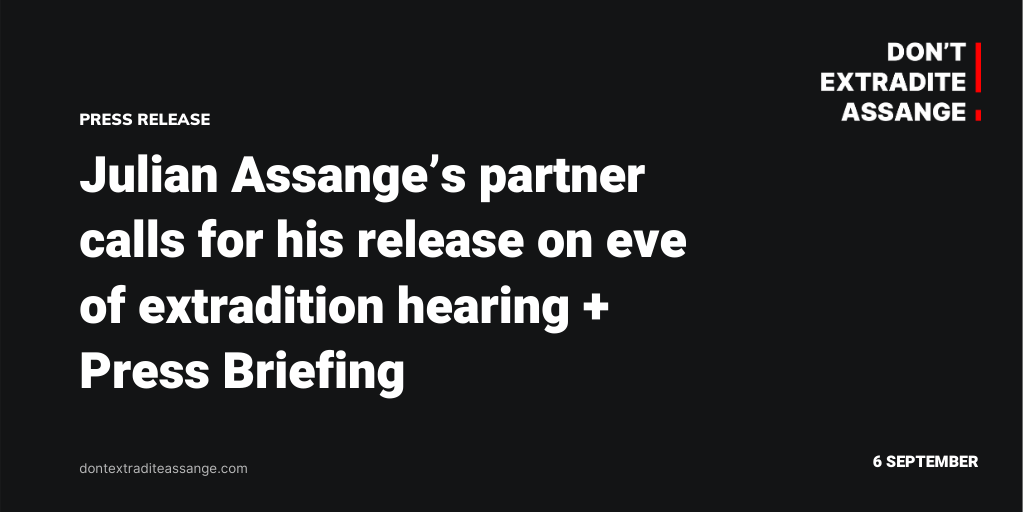
06. 09. 2020
Julian Assange Extradition Hearing Press Briefing 2020 – English
Julian Assange Extradition Hearing Press Briefing 2020 – Spanish
Stella Moris, Julian AssangeвҖҷs partner, has called for the WikiLeaks founder to be freed on the eve of the resumption of his extradition hearing at the Old Bailey.
Speaking ahead of tomorrowвҖҷs (Monday 7th September) court case she issued this statement:
вҖңJulian will be taken from his cell in Belmarsh tomorrow to the Old Bailey in a prison van that is like a ventilated coffin. He has been confined to his cell for up to 24 hours a day, deprived of intellectual stimulation, and has had no access to his lawyers for the last six months.
Two weeks ago, I was able to see him for the first time since lockdown. He looked a lot thinner than on my last visit. He was in a lot of pain and his health is not good. I was able to take Gabriel and Max to see him for 20 minutes, but we were warned by the prison staff that if they tried to touch him the visit would be ended. We had to wear masks and visors. To the boys, Julian has become a voice on the telephone, not their father whom they can see and hug.
It is heart breaking to think that if Julian is extradited and put in a US super-max prison the boys will never get to know their father and he will never see them grow up. That is what is at stake for us as a family. But there are also much bigger issues that we are fighting for. JulianвҖҷs case has huge repercussions for freedom of expression and freedom of the Press.
This is an attack on journalism. Julian is charged with practising journalism and for publishing. If he is extradited to the US for publishing inconvenient truths about the wars in Iraq and Afghanistan then it will set a precedent and any British journalist or publisher could also be extradited in the future. Julian faces 175 years in prison, but he has had to prepare for tomorrowвҖҷs hearing without even seeing the legal papers or seeing his legal team. There have been so many abuses of the legal process throughout the case, including a replacement indictment being introduced at the last minute even though the hearing began in February, and it should be thrown out for that reason alone.
But there are also fundamental legal reasons why the extradition should be blocked. This is a political act by the Trump government and Julian is accused of a political offence, which is outside the terms of the UK-US Extradition Treaty.
Anyone who cares about freedom of expression and freedom of the Press should support JulianвҖҷs fight against extraditionвҖқ. They will explain that the extradition should be thrown out because Julian is accused of a political offence, which is outside the terms of the UK-US Extradition Treaty. They will also show the numerous grave abuses of process have taken place during the case – and highlight the various statutory bars which apply to Julian being extradited. “It’s not just Julian in the prison. It’s the kids that are being deprived of their father. It’s me that’s being deprived.”
Also read the exclusive interview from Sunday Times magazine cover story about Julian Assange and his partner Stella Moris – Julian AssangeвҖҷs fiancГ©e, Stella Moris, on their secret family
Background
Julian Assange’s extradition hearing will restart on Monday 7th September 2020 at the Old Bailey and is anticipated to last three to four weeks.
Julian Assange has been charged by the Trump administration for publications which exposed war crimes and human rights abuses — for which he now faces a 175 year prison sentence.
Julian AssangeвҖҷs lawyers have experienced a considerable difficulty communicating with their client. Speaking at a recent hearing, Edward Fitzgerald QC, said ‘We’ve had great difficulties in getting into Belmarsh to take instructions from Mr Assange and to discuss the evidence with him.’ Mr Fitzgerald continued: ‘We simply cannot get in as we require to see Mr Assange and to take his instruction.’
The UN working group on arbitrary detention issued a statement saying that “the right of Mr. Assange to personal liberty should be restored”.
Massimo Moratti of Amnesty International has publicly stated on their website that, вҖңWere Julian Assange to be extradited or subjected to any other transfer to the USA, Britain would be in breach of its obligations under international law.вҖқ
Human Rights Watch published an article saying, “The only thing standing between an Assange prosecution and a major threat to global media freedom is Britain. It is urgent that it defend the principles at risk.”
The NUJ has stated “US charges against Assange pose a huge threat, one that could criminalise the critical work of investigative journalists & their ability to protect their sources”.
Ask your MP to sign EDM 719
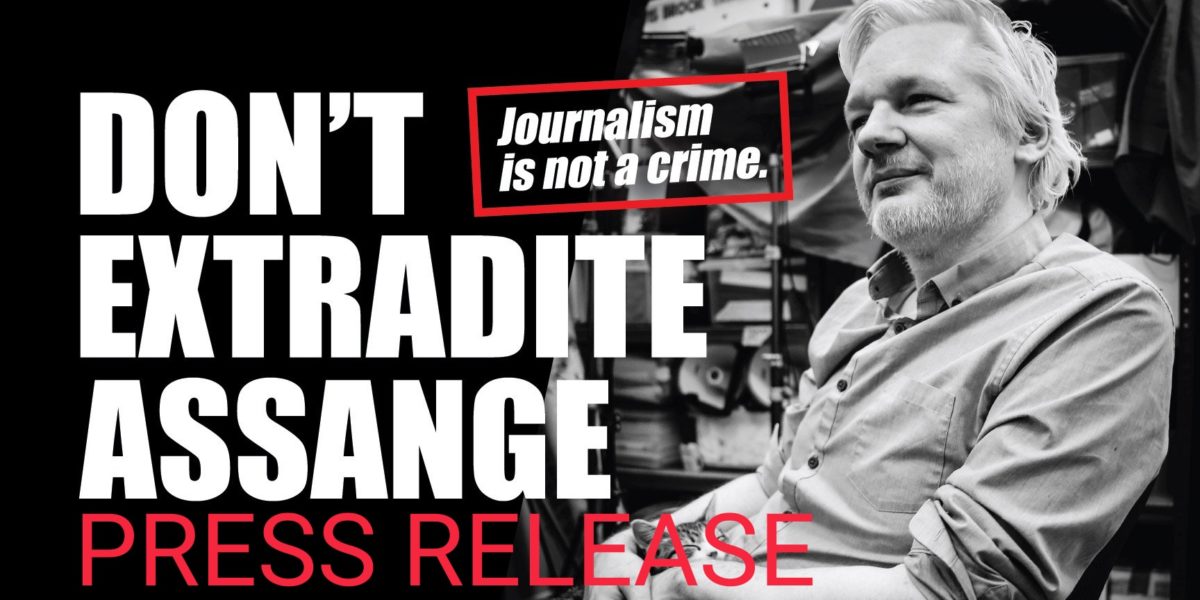
Ask your MP to sign Early Day Motion 719.
EDM 719 acknowledges statements by the National Union of Journalists, the International Federation of Journalists, Reporters Without Borders and others in relation to the WikiLeaks founder Julian Assange and affirms commitment to press freedom and public-interest journalism.
In recent months local councils across Australia have called for the release of Julian Assange so that the WikiLeaks founder no longer has to face extradition to the US where he could face 175 years in jail for revealing the truth about the Afghan and Iraq wars.
Murad Qureshi from the Greater London Authority (GLA) said, вҖҳthis is a great initiative by local councils in Australia. I hope UK local authorities follow suit in the fight to defend free speechвҖҷ.
CouncilвҖҷs in Melbourne City, Victoria, Moreland, Victoria, the City of Fremantle, Western Australia, Byron Bay, New South Wales (NSW), Lismore (NSW), Yarra, Victoria, and Darebin, Victoria, have all added their voices to the new wave of protest.
Campaigners are asking that local authorities around the world, especially those twinned with Australian towns and cities, and those in the UK where Assange is held, also put their weight behind the new push to free Assange.
The DonвҖҷt Extradite Assange campaign is circulating a model motion based on the Melbourne City councils successful resolution to help local councillors in the UK to get their authorities on board.
This Council:
- Reasserts its staunch support for Freedom of the
Press and the Rule of Law and the extension of both to all people.
- Notes that WikiLeaks has played an important and effective role in disclosing war crimes, corporate fraud, environmental damage and other criminal abuses.
- Notes that Mr Assange is currently being held on remand in HMP Belmarsh without charge, locked in a cell for 23 hours per day.
- Notes that Mr Assange is now in very poor health and is facing extradition from the United Kingdom to the United States of America (USA) in an unprecedented Espionage Act prosecution for engaging in journalistic activity and, if convicted, faces 175 years imprisonment and potentially the death penalty.
- Notes that the United Nations Working Group on Arbitrary Detention has called for Mr AssangeвҖҷs immediate release and that the United Nations Special Rapporteur on torture, Nils Melzer, has examined Mr Assange in Belmarsh Prison and believes that his life is in danger.
- Notes and supports Amnesty InternationalвҖҷs call for the UK to not extradite Mr Assange to the USA and that the UK abide by its obligations under international human rights law that forbids the transfer of individuals to another country where they would face serious human rights violations.
- Notes that other major civil liberties, media freedom and human
rights groups have spoken out against the arrest and treatment of Julian Assange and include:
The International BAR Association of Human Rights Institute (IBAHRI)
The European Council
The Australian Federal Parliamentary Group headed by Mr Andrew Wilkie
The Federal Parliament of Catalonia
The Federal Parliament of Austria
The former Foreign Minister of Germany
The Mexican Prime Minister
A Doctors Group of over 150 German Doctors
The 130 Prominent Germans Group
Many international Lawyers Groups
Teachers Groups in Melbourne and Sydney
Writers and Journalist Groups
PEN International
City Councils including Geneva, Yarra, Darebin, Moreland and Byron Shire
Freedom of the Press Foundation
Electronic Frontier Foundation
American Civil Liberties Union (ACLU)
The Committee to Protect Journalists (CPJ)
Reporters Without Borders
Human Rights Watch (HRW)
Australian Media Entertainment & Arts Alliance (MEAA)
Blueprint for Free Speech
Center for Constitutional Rights
FAIR
Media Watch
Code Pink
Cage UK
Human Rights Law Centre (Australia)
Digital Rights Watch (Australia)
IFEX (global network of organisations that promote and defend the right
to freedom of expression and information)
Fair Trials (global criminal justice watchdog)
Freedom of the Press Foundation
Electronic Frontier Foundation
The Committee to Protect Journalists (CPJ)
The New Yorker
International Association for Media and Communication Research (IAMCR)
A global petition compiled of approximately 400,000 signatures
- Requests that the CouncilвҖҷs officers write to the Prime Minister and the Home Secretary forthwith requesting that they immediately intervene in this matter to ensure that the appropriate authorities urgently address Mr AssangeвҖҷs poor health and mistreatment.
- Issue a public statement of the above points for dissemination through its regular media channels advising of the councilвҖҷs position and informвҖҷs MPs of the same.
Human Rights Advocates
Senator the Hon Marise Payne,
Minister for Foreign Affairs
senator.payne@aph.gov.au
foreign.minister@dfat.gov.au
PO Box 6100
Parliament House
Canberra ACT 2600
PO Box 5317
Cobargo
NSW 2550
27 May 2020
Dear Minister,
We the undersigned representatives of Australian human rights, digital rights and civil society organisations are calling for your urgent intervention on behalf of Mr Julian Assange.
Mr Assange and his colleagues at WikiLeaks helped extend the power of investigative journalism and truth-telling into the digital age, exposing war crimes and human rights abuses to public view. As a result, he has paid a heavy penalty.
In May 2019, Professor Nils Melzer, the UN Special Rapporteur on Torture declared that Mr Assange had been вҖңexposed to persistent, progressively severe abuse ranging from systematic judicial persecution and arbitrary confinement in the Ecuadorian embassy, to his oppressive isolation, harassment and surveillance inside the embassy, and from deliberate collective ridicule, insults and humiliation, to open instigation of violence and even repeated calls for his assassination.вҖқ He stated that Mr Assange shows the symptoms of an individual subjected to torture.
Professor MelzerвҖҷs review was undertaken well before the global pandemic, which has severely disrupted the UKвҖҷs prison and judicial systems. Since then, the situation has deteriorated gravely, with remand prisoners now subjected to effective solitary confinement.
The Australian government should be willing to intervene to protect the lives of Australians caught up in legal processes in foreign countries, where those proceedings violate international law.
Before the court reconvenes on 1 June, we request of you the following:
1. To make representation on Mr AssangeвҖҷs behalf that he be released on bail immediately;
2. To relay to us the outcome of this representation.
Mr Assange is a publisher, a father and an Australian citizen. It is time he had the support of his Government.
We await your response,
yours sincerely,
Suelette Dreyfus, Blueprint for Free Speech
Stuart Rees, Sydney Peace Foundation
George Newhouse, National Justice Project
Lizzie O’Shea, Digital Rights Watch
Victorian Council for Civil Liberties (Liberty Victoria)
Nicholas Cowdery AO QC,President, New South Wales Council for Civil Liberties
Valerie Joy, Alternatives to Violence Queensland
Christine McKenzie, PEN Melbourne
Margaret Pestorius, Australian Nonviolence Projects
Margaret Pestorius, Australian Nonviolence Projects
Cate Adams, Wage Peace
Dr Sue Wareham OAM, Medical Association for the Prevention of War
Paul Barratt AO, Australians for War Powers Reform
Tony Kevin, Canberra
Stanley Koulouris, Unions Australia, Sydney.
Dr K.H. Sievers, Australian Voice
Ian Rose, Support Assange & WikiLeaks Coalition (Sydney Aus)
Lorese Vera, Convenor, Canberra Action 4 Assange.
Tristan Sykes Convenor, Free Assange Hobart
Clare Smith, Adelaide support group for Assange
Margaret Grace Richardson, Founder – Julian Assange Supporters Alice Springs
Sean O’Reilly, Brisbane Assange Action Brisbane Queensland
Rod Lemin, Brisbane Assange Action Brisbane Queensland
Paul Oboohov, Socialist Alliance, Canberra Branch
Melbourne Activist Legal Support (MALS)
Raine Sinclair, Melbourne4WikiLeaks
Tom Cooper, Melbourne4WikiLeaks
Lorine Anita Brice, Melbourne4WikiLeaks
Kate Hecimovic, Melbourne4WikiLeaks
Joe Lorback, Solidarity Sound System
Danielle Wood, People For Assange
Mitchell Duirs, Perth 4 Assange, WA
Walter Mellado, Australians For Assange
Amelia Ryan, Australians For Assange
Dianne Andary, Australians For Assange
Desmond McMillan, Australians For Assange
Phillip Adams, Australians For Assange
Camillo De Luca, Australians For Assange
Rosemary Gower, Riverland Support Group for Julian Assange’s Freedom Jean Lee, Adelaide Friends of Wikileaks
24. 04. 2020
Julian AssangeвҖҷs lawyers will return to court on Monday to argue that his extradition trial should be postponed.
The hearing is due to resume in the court attached to Belmarsh prison on 18 May. But AssangeвҖҷs lawyers will argue that they have not had full and unfettered access to their client.
The onset of the coronavirus crisis has reduced that already restricted access to unacceptably low levels.
Julian Assange will not even be able to appear by video link at Westminster court on Monday because he has been advised on medical grounds that moving to, and using, the video link room in the prison is too great a risk.
Two prisoners have already died in Belmarsh and inmates are now locked down 23 hours a day. The government has halted its prisoner release programme which was already too restricted to reduce the prison population to safe levels.
The Judge, Vanessa Baraitser, has previously refused to bail Julian Assange.
The prosecution lawyers acting on behalf of the US government have agreed that the remainder of the trial should be postponed.
Journalists and members of the public will be unable to properly and fully attended the trial if it goes ahead in the current health emergency. During the first week of the hearing in February most journalists could not gain access to the courtroom and were consigned to a portacabin in the grounds of the Belmarsh court with an inadequate video link. But even that option would be unavailable or unusable with coronavirus still a significant danger.
The remainder of the hearing, likely to last three weeks, will constitute the vast majority of the trial and will hear all the witnesses, many of whom will be travelling from abroad.
вҖңIt is quite clear that this hearing cannot go ahead in just a few weekвҖҷs time,вҖқ said Joseph Farrell, WikiLeaks ambassador. вҖңJulianвҖҷs lawyers cannot prepare adequately, witnesses will not be able to travel, and journalists and the public will not have free, adequate and safe access to the proceedings. Justice will neither be done, nor seen to be done.вҖқ
The DonвҖҷt Extradite Assange campaign will organise a twitter storm on Sunday evening at 6pm ahead of the hearing.
13/11/2019
National Union of Journalists issues resolution on Assange extradition case
The unionвҖҷs executive passed a comprehensive motion last Friday demanding that Assange should not be sent to the US where he could face 175 years for revealing information about the Iraq and Afghan wars.
Assange has been held in Belmarsh prison since he was committed for extradition by then Home Secretary Sajid Javid.
The union is now writing to the Home Secretary, the Shadow Home Secretary, and the Shadow Justice Minister encouraging them to take action on the Assange case.
The DonвҖҷt Extradite Assange campaign said: вҖҳthis is an important development which gives the lie to the US governments argument that Julian Assange is not a journalist. It also provides an important initiative that other trade unionists can rally behindвҖҷ.
The full text of the motion is as follows.
This executive notes:
1. That Wikileaks founder Julian Assange is held in Belmarsh prison awaiting United States extradition proceedings, a process that can take many years.
2. If Assange is successfully prosecuted in the US he faces 175 years in prison.
3. That the extraterritorial application of the Espionage Act in the indictment of Assange criminalises journalistic activities, in this case activities carried out on UK soil by a non-US national, in collaboration with numerous UK media (including The Guardian, Channel 4 and The Telegraph).
4. That previous statements by the General Secretary of the NUJ, by the Australian Journalists Union MEAA, and by the International Federation of JournalistsвҖҷ organisations have supported Assange.В
5. That there is a political dimension to extraditions and that the вҖҳspecial relationshipвҖҷ between the UK and US makes the extradition of Assange more likely to go ahead.
This executive believes:
1. That AssangeвҖҷs indictment comes at a time of heightened threats to the press in Western countries in the form of raids on newspapers and broadcasters, government claims that the press are вҖҳthe enemy of the peopleвҖҷ, and actual prosecutions involving life-long sentences for publishing accurately.
2. That AssangeвҖҷs extradition to the United States would establish a dangerous precedent with regard to the prosecution of journalists in this country under the UK Official Secrets Act given the requirement for the UK courts to accept US arguments as to dual criminality for the extradition to go ahead.В
3. That press freedoms in this country will be weakened if the courts accept that NUJ membersвҖҷ publishing activities in this country can give rise to criminal liability in foreign states and to their consequentВ lawful extradition.
4. That the publication of the Afghan and Iraq war logs and other material by Wikileaks that are the subject of the US indictment revealed important information that has benefitted the public.
7. Disclosing information to the public should never be equated with espionageВ
This executive resolves:В
1. To campaign to stop the extradition of Julian Assange to the US.
2. To write to the Home Secretary, the Shadow Home Secretary, and the Shadow Justice Secretary making the unionвҖҷs case on this issue.В
DonвҖҷt Extradite Assange Campaign
Website: dontextraditeassange.com
twitter, facebook: @DEAcampaign
